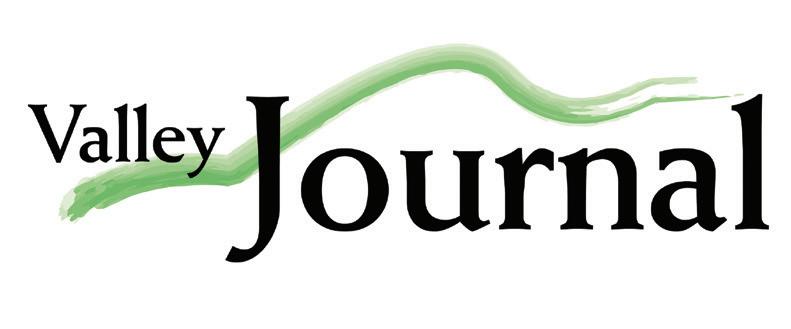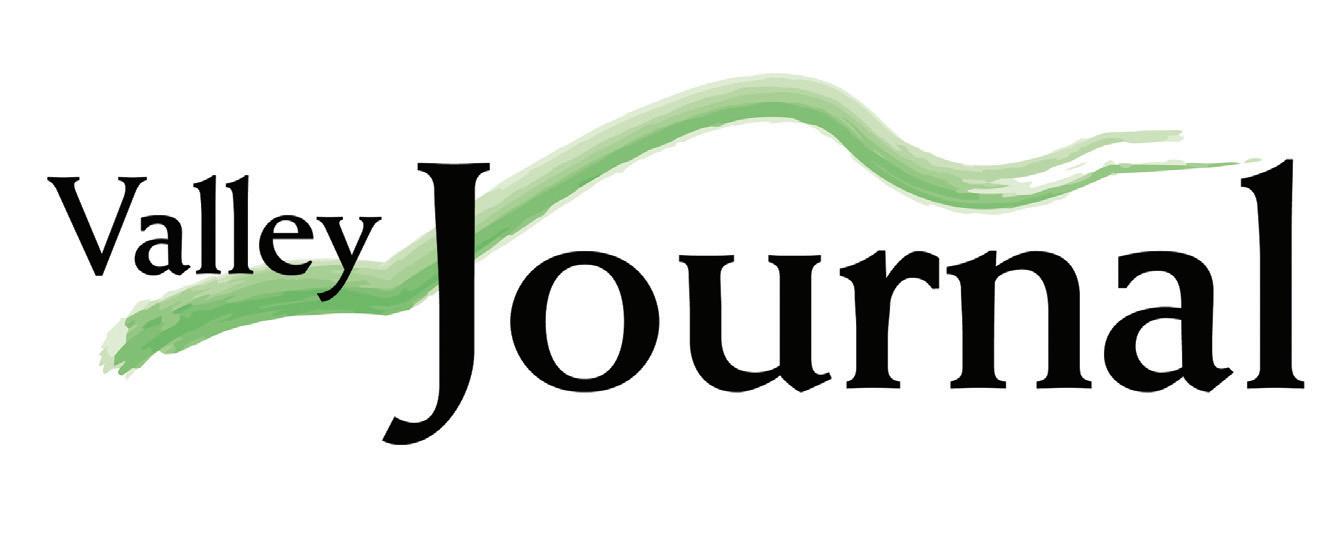
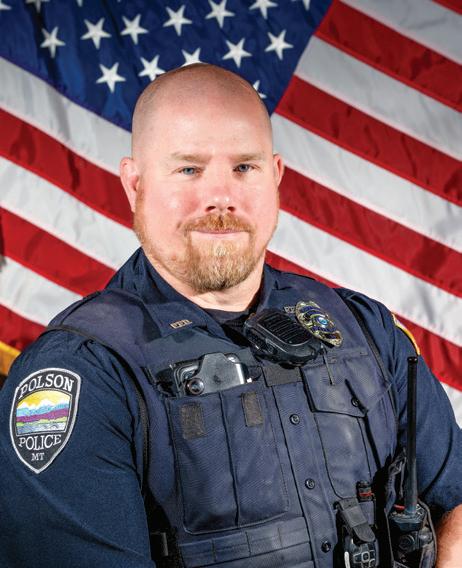
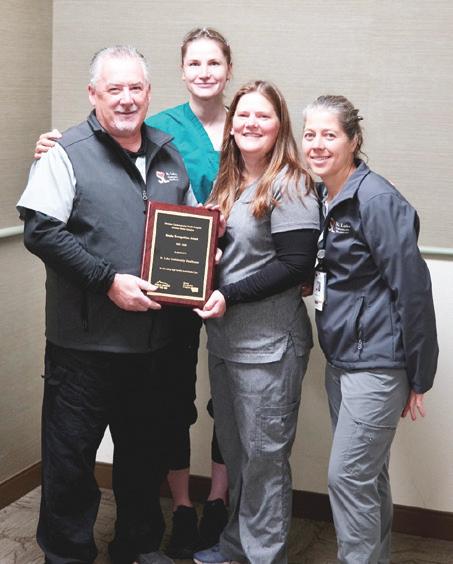


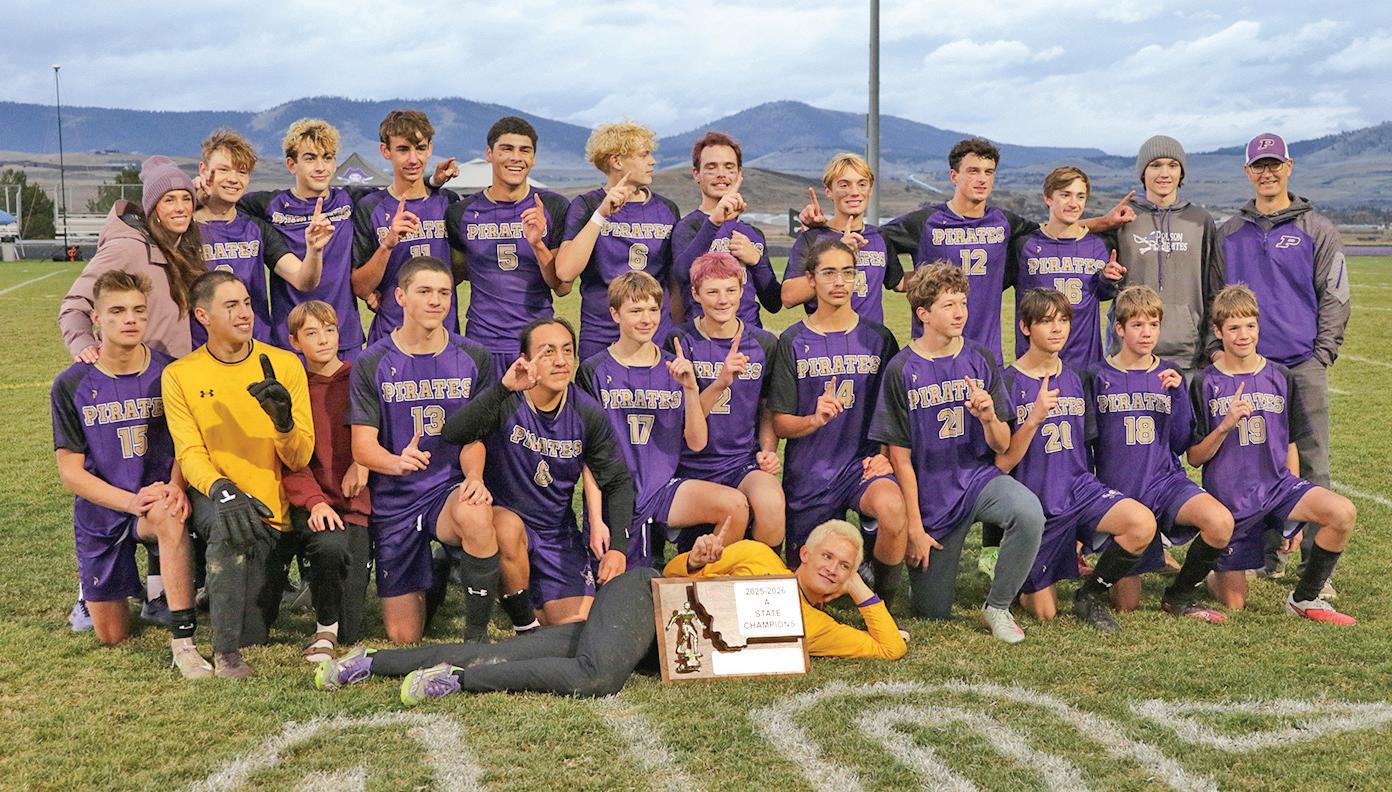







by Michelle Dale for the Valley Journal
POLSON — The Polson Pirates boys soccer team shut out the Whitefish Bulldogs, 4-0, to win the state championship before a stadium full of fans last Saturday. The state game
was held in Polson for the first time this year, making the win even more special for the community. The team finished the season with 16 wins, two ties and two losses.
Polson fans were loud and on their feet, creating an atmosphere of enthusiasm
and excitement. Each time a player scored, the student section would chant their first and last names – over and over and louder each time. PHS students made sure their team was never alone on the field, backing them up with chants and taunts. They also heckled
Whitefish’s student section, yelling the classic “We can’t hear you!” when the other side grew quiet. One of the most exciting moments came when players joined students in the “I believe we will win” chant. With two minutes left on the clock, realization of the impending
state win nearly had players rushing the field early. Many tears and hugs were shared by players and fans as the Pirates sealed the state win. Goalkeeper Maddox Bird led the Polson tradition of the winning “Polson
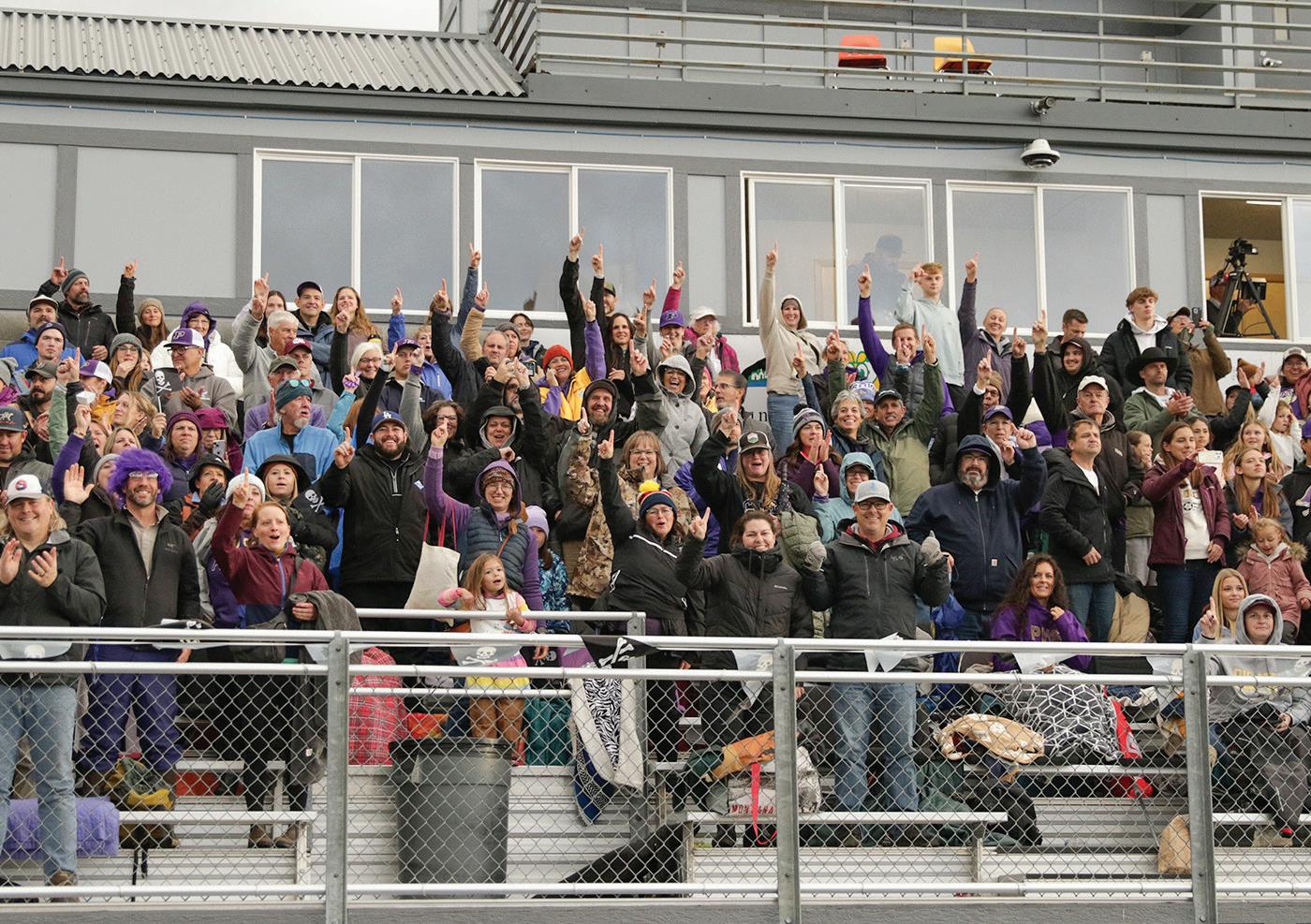
from page 1
Pirates” chant on the field until he hit a giant foam hammer and students all fell down.
The win was an emotional one for head coach Josie Lies. This is her fourth year coaching high school soccer players, most of whom she previously coached in a community league since they were fifth graders. Tears fell as she praised her team, noting that team captains Maddox Bird, Cruz Lies, Dion Lichtenberg, and Roger Ellis were MVPs of the season. “Cruz holds down the middle and shuts everyone down,” she said.
The team will lose eight seniors to graduation this year. Coach Lies said she is sad to see them go because they have helped grow the program into the state-winning team it is today.
The Polson Pirate state soccer champs were celebrated by their community with a parade down Main Street at 7 p.m. the same evening.
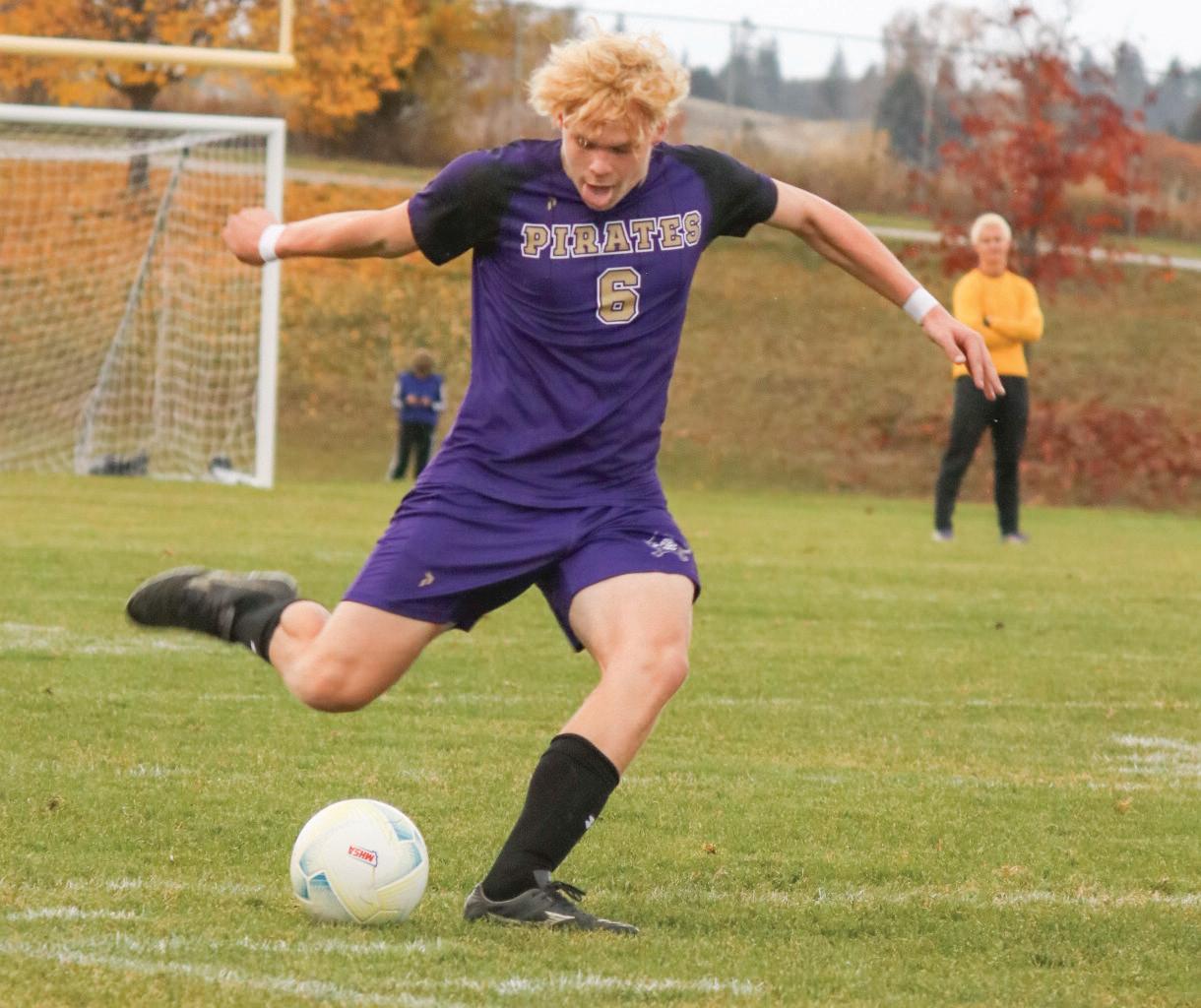


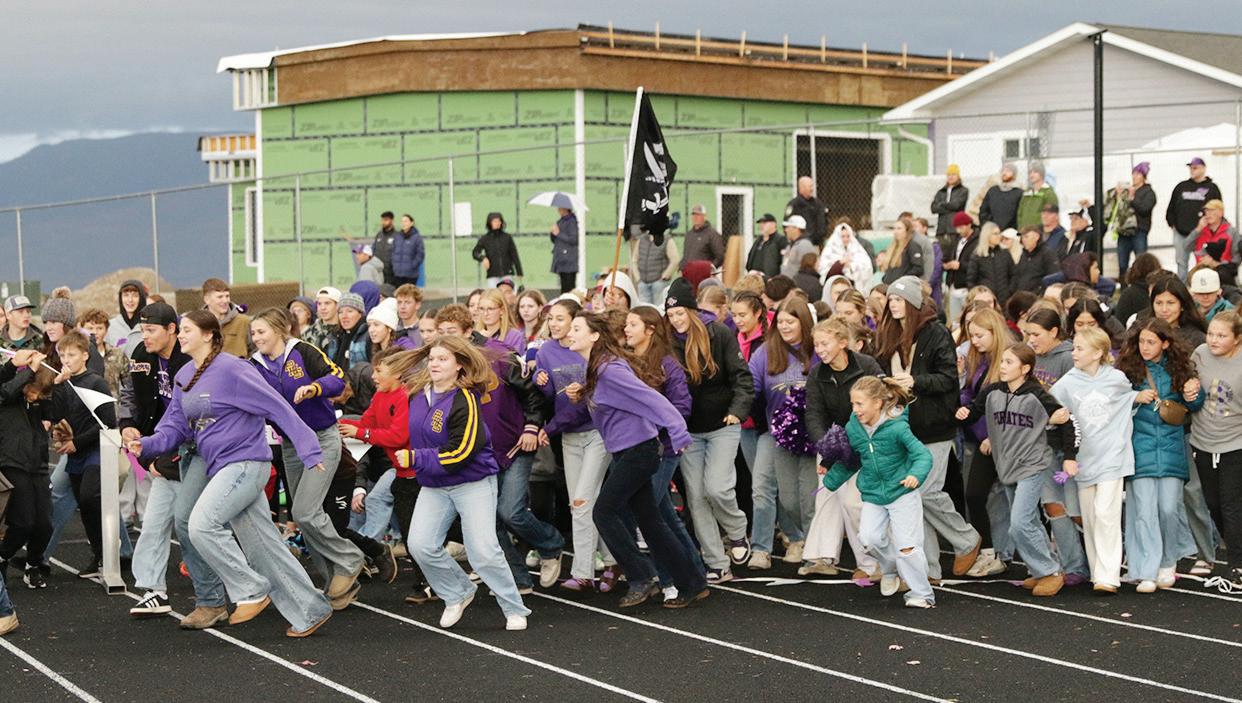
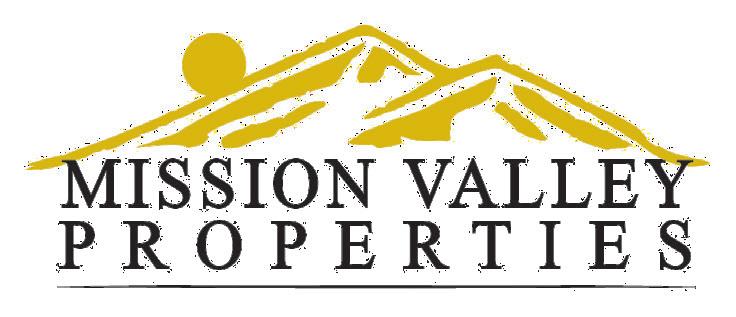
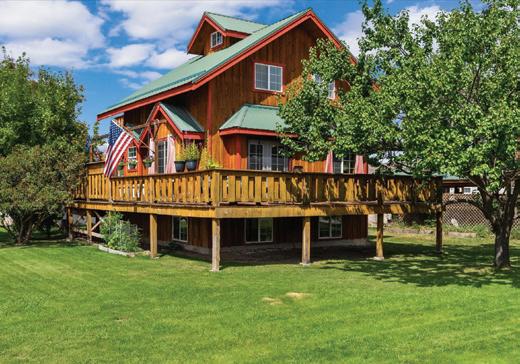
Unique & Character rich home
St. Ignatius. 3 bdrms, 2 baths on 3 levels with terraced decks, outside living spaces and garage.
$374,500 MLS 30060596
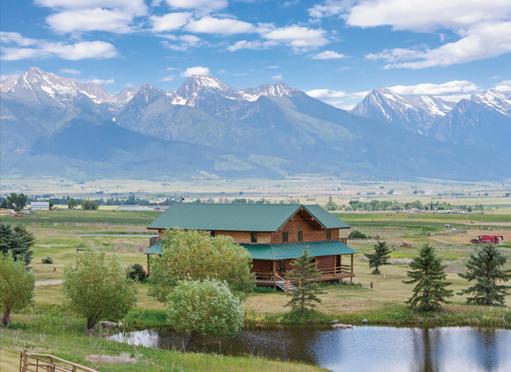
Custom log home
Over 3,000 SF on 20 acres. Property is in two parcels with a second well already in. Beautiful and versatile property.
$975,000 MLS 30051886
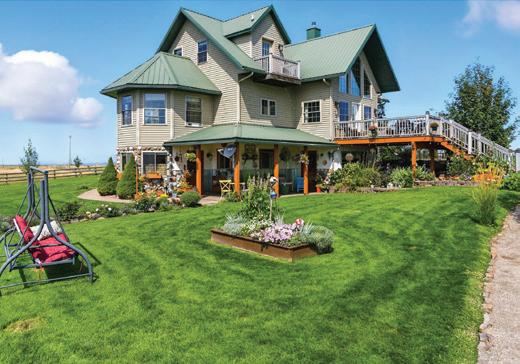
Two homes in one!
5 acres with incredible landscaping, paved drive and convenient but rural location. Gorgeous downstairs living quarters.
$860,000 MLS 30057190


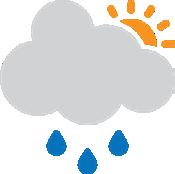

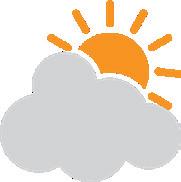











And find us online for more photos, videos, breaking news and special sections!

The Valley Journal newspaper (PE 23-190) is published weekly by Valley Journal LLC. Periodicals postage paid at Ronan, MT.
Business hours are 9 a.m. to 5 p.m., Monday through Friday.
Distribution is by mail subscription ($59 per year in Lake County, MT; $74 per year elsewhere in U.S.) and by newsstand sales. Postmaster: send address changes to Valley Journal, P.O. Box 326, Ronan, MT. 59864.
Your homegrown newspaper serves residents of Lake
County and the Flathead Indian Reservation.
Deadline for display advertising is 2 p.m. Thursday. Deadline for news submissions, calendar items, classifieds and legal advertising is noon Friday, for the following week’s newspaper.
News, letters to the editor and calendar submissions may be sent by email to: vjeditor@valleyjournal.net. Classified and legal advertisements requests should be emailed to: vjmail@valleyjournal.net.
All print subscriptions include full access to online news,
archives. Sign up online at: www.valleyjournal.net/ subscribe
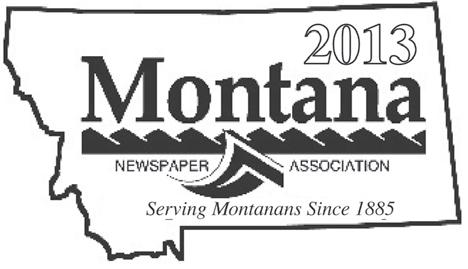
For general inquiries: call 406-676-8989, email summer@valleyjournal.net, or send mail correspondence to P.O. Box 326, Ronan, MT 59864. Copyright 2025, the Valley Journal. All rights reserved. Reproduction, reuse or transmittal in any form or by any means is prohibited without written permission of the Valley Journal.
By Joyce Lobeck for the Valley Journal
PABLO — The final results have been certified for the Confederated Salish and Kootenai Tribes’ primary election, and the top two candidates from each of the districts up for election this year will advance to the general election to be held on Saturday, Dec. 13.
Moving forward to the general election are Jim Malatare and Greg Dumontier from Arlee, Len Twoteeth and Louis Junior Caye from Elmo, Carole Depoe Lankford and Ronald Couture of Ronan, and Jami Pluff and Jennifer Finley of Polson.
Tom McDonald came in first for an at-large seat and Sam Barnaby was declared the second candidate after a recount. Only one vote separated Barnaby, who had 157 votes while Lois Friedlander had 156 votes. According to 2025 Election Rules and Regulations, when the out-
come is within 3 votes, a recount shall be performed, stated Election Committee Chairwoman Danielle Matt. All five election committee members, poll judges from all eight districts and two staff members conducted the recount of all at-large ballots on Oct. 17.
Every ballot was read and recounted and results tallied. There were no changes to any of the tallied numbers. As a result, McDonald and Barnaby will appear
on the general election ballot in the race for the at-large seat.
To qualify for an at-large seat, the candidate must be a CSKT member who has lived on the reservation for at least one year and must continue to reside on the reservation for the entirety of their term.
The Flathead Reservation includes eight districts: Jocko Valley (Arlee), Mission, Ronan, Pablo, Polson, Elmo–Dayton, Hot Springs–Camas Prairie, and Scilip (Dixon). It also has two at-large seats.
Half of the districts on CSKT’s Tribal Council are up for election every two years, and 18 people ran in this year’s primary that took place Oct. 15.
The four Tribal Council members whose positions are not up for election this year are Chairman Michael Dolson, Secretary Martin Charlo, Treasurer James Steele Jr., and Danielle Matt as well as at-large member James “Bing” Matt.
Each of the 10 rep-
resentatives are elected for four-year terms with staggered elections every two years. In 2027, the five incumbents will be up for re-election. All members of the CSKT Tribes over the age of 18 have the right to vote if they provide a physical residence for the last year on the Flathead Reservation. A qualified person who is unable to cast their vote in person can request an absentee ballot before the election from the Election Board by a written request.
by Isabel Hicks, MSU News Service
BOZEMAN — Mon-
tana State University’s Mark and Robyn Jones College of Nursing and the Montana State University Alumni Foundation recently received a Blue Impact Grant from Blue Cross and Blue Shield of Montana.
The $43,685 grant, awarded in August, will help the nursing college collaborate with clinical agencies in rural areas to develop a post-graduate transition-to-practice program for advanced practice registered nurses who want to bolster rural health care systems.
Facilitated by the funding, MSU nursing college faculty started conducting a thorough needs assessment of rural health care providers and clinics in September. The preliminary work has involved a review of current rural-specific curricula offered at MSU and nationally, which is informing the survey in development that will serve as the primary data collection method for the needs assessment. Faculty plan to distribute the surveys in early 2026 and complete data collection by March 2026.
Drawing on the survey results,
“Montana’s rural nurses and advanced practice clinicians are the lifelines of their communities — often the first and only point of care when minutes truly matter,” said Sarah Shannon, dean of MSU’s nursing college. “Through the Blue Impact partnership, we can better understand their unique needs and design a transition-to-practice program that prepares APRNs to deliver confident, high-quality and life-saving care where it’s needed most.”
faculty will propose best practices for a transition-to-practice post-graduate program supporting APRNs — including nurse practitioners and nurse midwives — in providing specialized care for rural communities.
The key MSU players doing the work are Marg Hammersla, graduate department head and assistant professor of nursing; Stacy Stellflug, associate professor of nursing and principal investigator on the rural nurse practitioner scholars grant; and Kailyn Mock, director of the Montana Office of Rural Health and Area Health Education Center.
Fran Albrecht, CEO and president of the MSU Alumni Foundation, said the foundation is deeply grateful for Blue Impact grant’s support of the nursing college.
“Thanks to Blue Cross and Blue Shield of Montana, this
support benefits our nursing students — preparing them to serve rural communities across the state and helping to ensure that Montanans have access to quality health care,” Albrecht said.
The Blue Impact grant initiative is part of an ongoing commitment from Blue Cross and Blue Shield of Montana to invest in community organizations that address the social and economic factors impacting health and wellness across the state.
Shannon explained that developing programs specific to rural areas and populations is important because such areas can have fewer resources, a lack of specialty care and physical distance from urgent or emergency care compared to urban settings. Additionally, many of these health care systems are in agricultural settings, where traumatic inju-
ries on farms and ranches are relatively common. Providers in this area need to be able to provide emergency lifesaving care to their populations, often while awaiting transportation to a hospital that can provide a greater level of care, she said.
Lisa Kelley, president of Blue Cross and Blue Shield of Montana, said the organization is committed to strengthening the health of Montana communities, especially in rural areas.
“By supporting MSU’s efforts to prepare advanced practice registered nurses for the unique realities of rural health care, we’re investing in solutions that will make a meaningful difference for Montanans across the state,” Kelley said. “We are proud to partner with MSU in building a stronger, healthier Montana.”
POLSON — Officer Michael Wharton recently received the Distinguished Service Medal—one of the department’s highest honors—for his extraordinary courage and decisive action during a dangerous encounter earlier this year. The award recognizes Officer Wharton’s heroism during an incident on Feb. 14, 2025, when, shortly after midnight, he attempted a routine traffic stop on a vehicle traveling at high speed without functioning taillights. Unbeknownst to Officer Wharton, the driver was suspected in a brutal homicide and fleeing the scene.
As Officer Wharton initiated the stop along Highway 93 near Rocky Point Road, the suspect opened fire, striking his patrol vehicle multiple times and shattering the windshield. Despite coming under immediate and heavy gunfire, Officer Wharton maintained composure and pursued the suspect as the vehicle fled. His patrol car was ultimately disabled by continued gunfire, yet his quick and courageous actions provided critical information and time that allowed responding officers to locate and apprehend the suspect in the Elmo area without further injury or loss of life. Officer Wharton sustained minor injuries from flying glass but remained steadfast in his duty. His bravery under fire, presence of mind, and refusal to yield in the face of mortal danger were instrumental in the safe resolution of a violent and unpredictable situation.
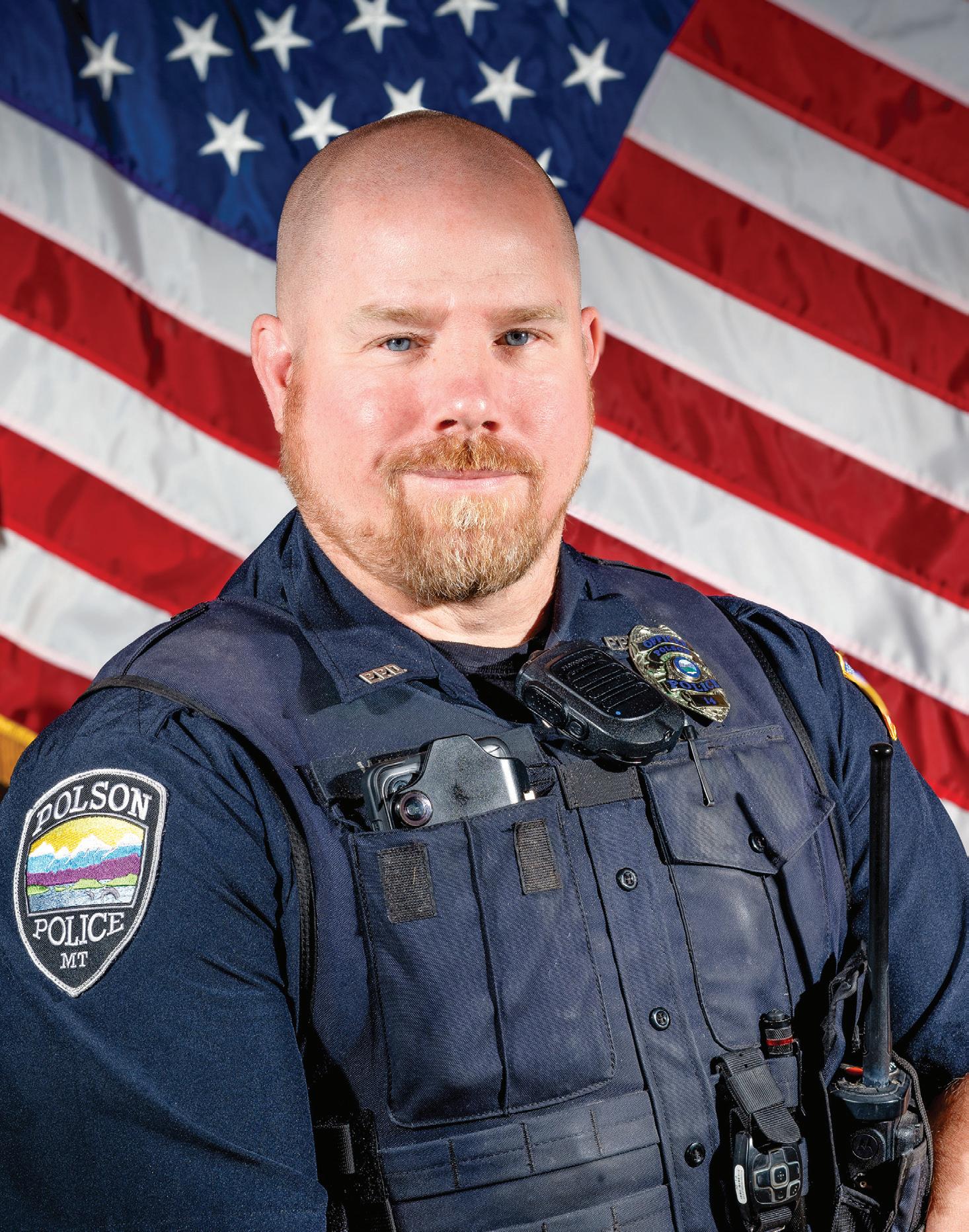

Officer
“
Wharton’s courage and calm professionalism that night reflect the very best of what it means to be a guardian of your community... We are proud to honor him for his distinguished service.”
- Polson Police Chief George Simpson
Polson Police Chief George Simpson commended Officer Wharton for his actions, stating, “Officer Wharton’s courage and calm professionalism that night reflect the very best of what it
means to be a guardian of your community. His actions not only safeguarded our community but directly led to the capture of a dangerous individual. We are proud to honor him for his distinguished service.”
The Distinguished
Service Medal is awarded to officers who demonstrate exceptional bravery, selflessness, and devotion to duty under the most dangerous circumstances. By placing himself in harm’s way, Officer Wharton embodied the highest ideals of law enforcement and brought honor to himself, his department, and the City of Polson. His actions
directly contributed to the capture of a violent and dangerous individual, safeguarding the lives of countless others.
Officer Wharton’s courage and commitment exemplify the highest ideals of law enforcement and bring great honor to himself, the Polson Police Department, and the City of Polson.
RONAN — St. Luke Community Hospital was recently recognized with the Stroke Recognition Award, which is sponsored by the Cardiovascular Health Program within the state health department. The Recognition Award singles out Critical Access Hospitals that demonstrate that they have the infrastructure and commitment to provide high quality care for patients with acute stroke. Receiving the Stroke Recognition confirms St. Luke meets high standards related to the utilization of evidence-based stroke order-sets and protocols, laboratory and radiology services available 24/7 and administrative commitment to treating acute stroke patients.
The Stroke Recognition Award was launched in 2011, and St. Luke Community Hospital is one of only 16 Critical Access Hospitals in Montana to receive the recognition. Requirements for the recognition include tracking and reporting key stroke outcomes,
using outcomes data to initiate quality improvement activities and coordinating regular healthcare provider stroke trainings.
Stroke is the leading cause of adult disability and is a leading cause of death in the Montana. Last year, over 2,000 Montana families were directly impacted by the devastating effects of stroke. Symptom recognition and timely, high quality treatment are important factors in reducing death and disability from stroke. Know the signs and symptoms of stroke:
Sudden numbness or weakness of the face arm or leg
Sudden trouble seeing Sudden confusion, trouble speaking or understanding
Sudden loss of balance or coordination
Sudden severe headache with no known cause
Know what to do if you or someone you know experience stroke symptoms: Call 9-1-1 immediately For more information about stroke, please visit: www.strokeassociation.org
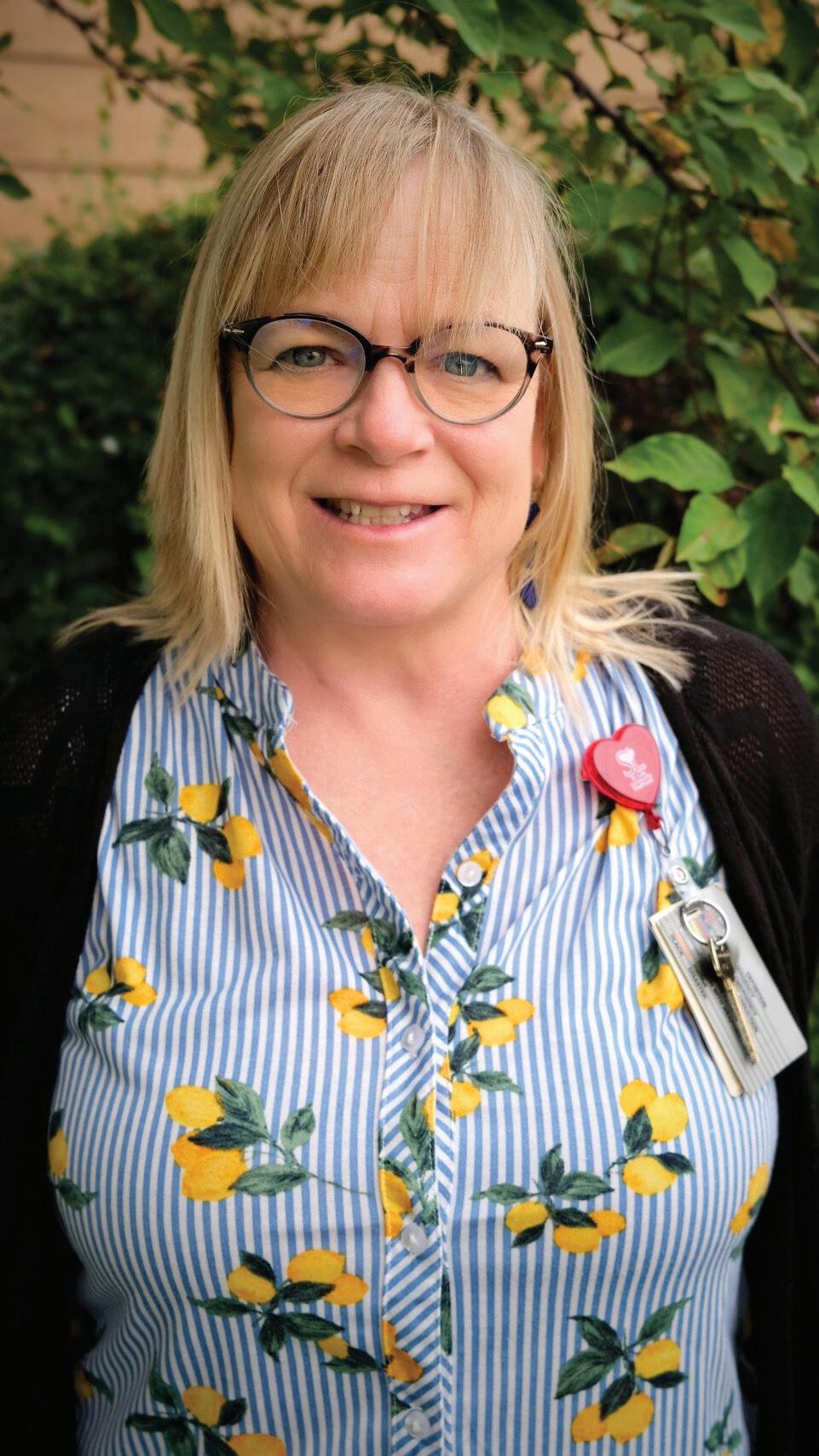
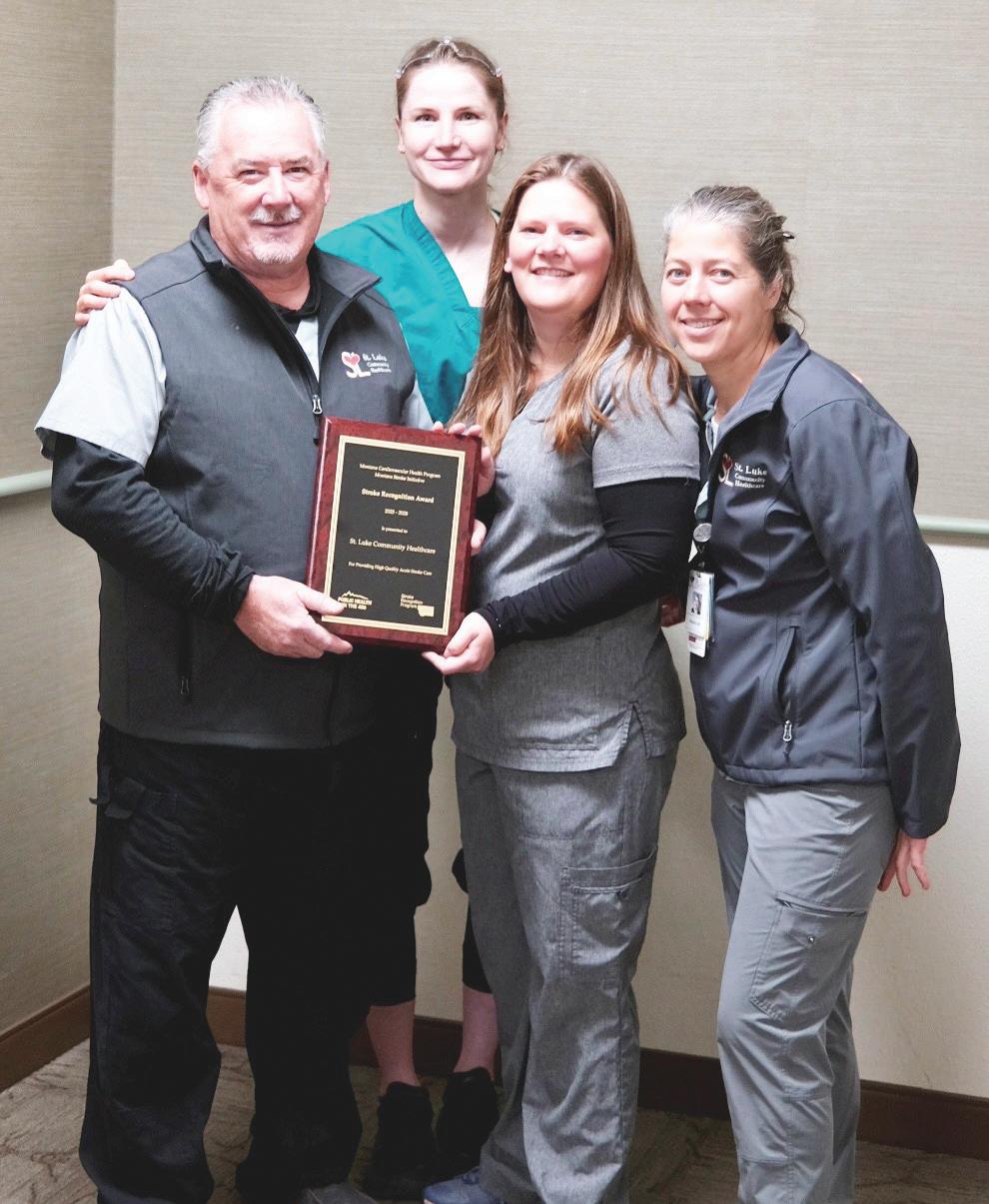

By Diana Setterberg, MSU News Service
BOZEMAN — A study of nine species of large mammals in the Greater Yellowstone Ecosystem has revealed that their behavioral responses to summer heat were influenced more by the structure of their environments than by their biological traits or greater temperature increases – a result the Montana State University ecologist who co-authored the study finds encouraging as the region’s climate continues to warm.
Justine Becker, an assistant professor in the Department of Ecology in the College of Letters and Science, is the co-lead author of the study published this month in the journal Ecosphere. Becker and a team of researchers from the University of Wyoming, where Becker was a postdoctoral researcher when the study began, collaborated with the Bureau of Land Management, National Park Service, U.S. Geological Service, the Wyoming Game and Fish Department, and Idaho Department of Fish and Game to synthesize data and conduct the multi-species analysis. Becker studies the ecological factors that cause behavioral variation in wildlife, particularly in animal movement and habitat use decisions. She

from one another.”
said the study was designed to determine how different environmental conditions and inborn traits influenced large mammals’ responses to rapidly increasing temperatures – in this study, variations in maximum daytime temperatures in summer. The researchers included several species and populations in the study to help them better understand ecological patterns, as well as trends in the specific ecosystem they studied. Becker said the study was motivated by the understanding that rising temperatures due to climate change present an increasingly prevalent stressor to animals.
The researchers analyzed GPS location data from populations of herbivorous bison, bighorn sheep, moose, mountain goats, mule deer, pronghorn and elk, as well as two carnivorous species, wolves and cougars. The data were collected between 2001 and 2019 by the collaborating agencies in the Greater Yellowstone Ecosystem.
The research team narrowed its analysis to annual data from mid-June to the end of August, when the ecosystem experiences its warmest temperatures. While seeking to determine animals’ behavioral changes in response to the heat and assess how
those responses differed across populations, the researchers also evaluated whether groups that encountered higher temperatures experienced greater degrees of stress, manifested through larger behavioral changes.
“As far as we know, this is the first study of this nature that’s taken data from a lot of different populations of large mammals and looked at their behavioral plasticity at the same time,” Becker said. “We were really interested in seeing whether there was any kind of generality in their responses to increasing temperatures, as well as species-specific responses that might be different
As expected, individuals in all the populations changed their behaviors in response to rapidly increasing temperatures by seeking cooler conditions and moving more slowly. But Becker said the team was surprised to find that populations living in homogeneous environments – those with mostly uniform landscape features – altered their behavior more dramatically than those living in environments with more varied landscapes. For example, across all species studied, pronghorn living on the prairie in Wyoming’s Shirley Basin were the most likely to alter their behavior to find shade from trees in response to increasing temperatures. Becker said that may be because animals living in homogeneous environments like the Shirley Basin need to travel farther to find relief from the heat than those living in habitats that, for example, encompass both open meadows and areas of tree cover.
The researchers also evaluated behavioral responses according to the animals’ endogenous traits, such as their sex, physiology and body size. The study did not find any correlation between those traits and the animals’ behavioral responses, but the authors state that further study is needed to compare individual characteristics,
such as coat color, with behavioral data.
Becker said the findings were encouraging because they indicate that large mammals are well equipped to adjust their behaviors to cool themselves down. That’s important because they are unable to adapt physically to environmental changes as quickly as smaller animals, due to their longer lifespans and slower generational times.
“We often think of climate change as a huge ecological challenge for most species, and it absolutely is, but, at the same time, behavior is this really amazing way that animals are able to buffer themselves against these changes because they can do it right away,” Becker said. “They don’t need to wait around for the process of evolution to take its course.”
She said that because the study showed a relationship between environmental structure and the degree to which different mammals adjusted their behavior, the information may influence habitat managers to consider large ecosystems as a whole, rather than focus on species-specific management strategies.
“A large part of what management agencies work on is habitat treatment, modification and protection. We’re hopeful
from page 8
that this study gives a general sense of the kinds of environmental features needed to help these animals and what types of habitats are going to be important for them in the future,” Becker said.
University of Wyoming wildlife ecologist Jerod Merkle, who oversaw the study group that included co-lead author Rebecca Thomas-Kuzilik, agreed.
“We saw a large variety of responses during hot days across individuals and across species,” he said. “This result tells us that animals have options, and maintaining a landscape that is a mosaic of these different habitats is key. Further, landscapes need to be permeable, such that the animals can access all these different habitats when the heat waves come.”
Becker emphasized that the team was able to conduct this type of study only because many scientists and agencies shared their data.
“Such syntheses, collaboration and comparative analysis are invaluable to the production of new ecological knowledge,” she said.
News from St. Luke
Community Healthcare
RONAN — St. Luke Community Healthcare recently donated nearly $10,000 to local school athletic booster clubs through its annual WellChild Check + Sports Physical program, which runs each summer from May through August.
For every middle or high school student who completed a well-child check that included a sports physical during the summer months, St. Luke donated $25 to that student’s school athletic booster club — a program designed to strengthen both youth health and community spirit.
This year’s program saw excellent participation, resulting in significant contributions across the valley, including:
St. Ignatius Schools: $2,025
Ronan Schools: $3,950
Polson Schools: $2,250
Charlo Schools: $775
Arlee Schools: $300
“We’re very grateful to local families for choosing well-child checks for their student athletes,” said Kris Schallock, Clinics Manager at St. Luke Community Healthcare. “These visits offer more one-on-one time with providers to discuss not just physical health, but also important preventive screenings like depression and immunizations. It’s one of the best ways to set kids up for lifelong health.”
The program’s donations were recognized at local high school football games throughout October, where St. Luke presented checks to several school communities — including St. Ignatius, Ronan, and Polson — in celebration of the shared success.
“Every appointment supports both the student’s health and the school’s athletic programs,” Schallock added. “It’s a great reminder that when our community takes care of its kids, everyone wins.”
Families are encouraged to schedule well-child checks for their students each summer by calling any St. Luke Community clinic, conveniently located in Ronan, Polson, and St. Ignatius. Learn more at: www.stlukehealthcare.org.
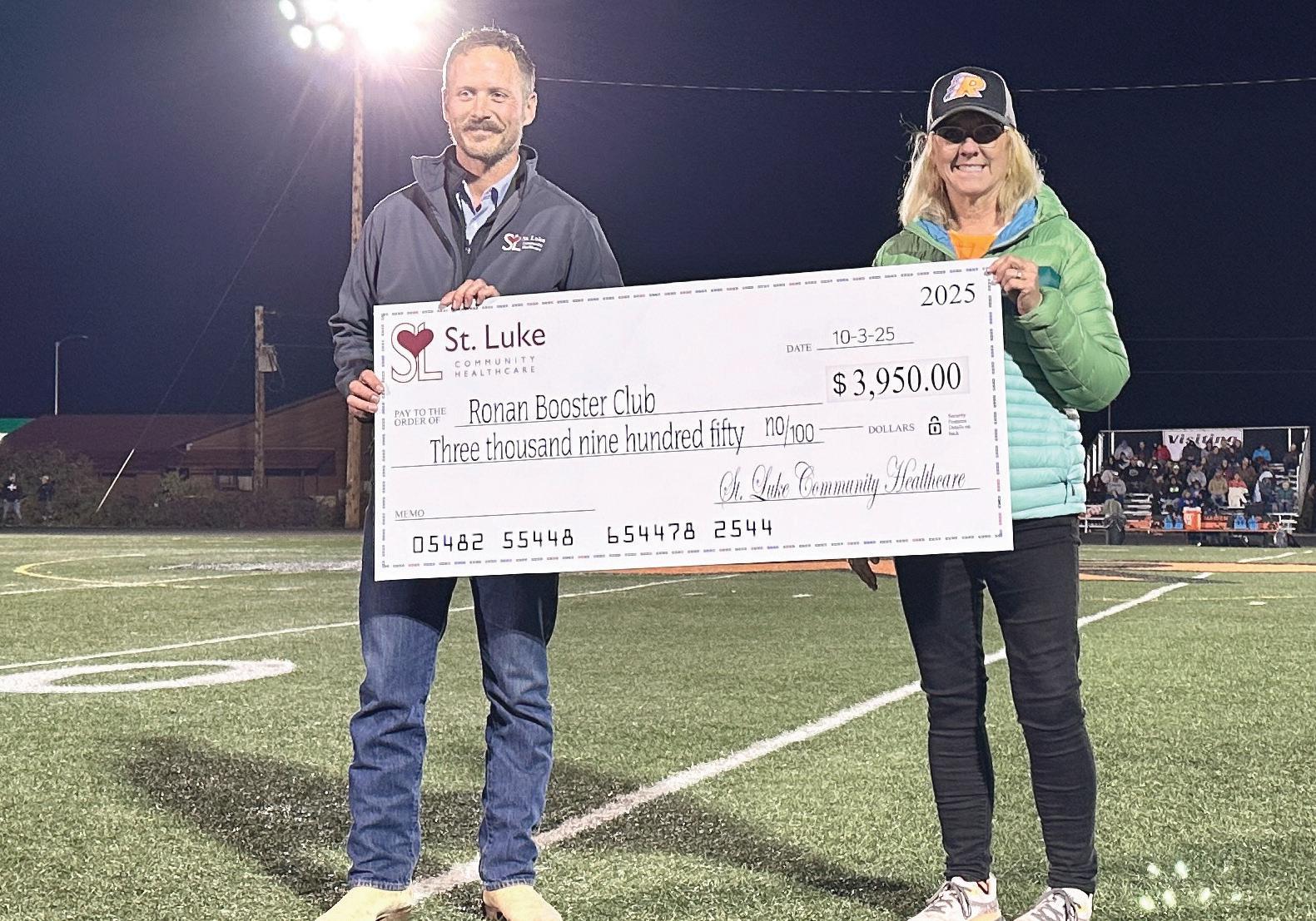
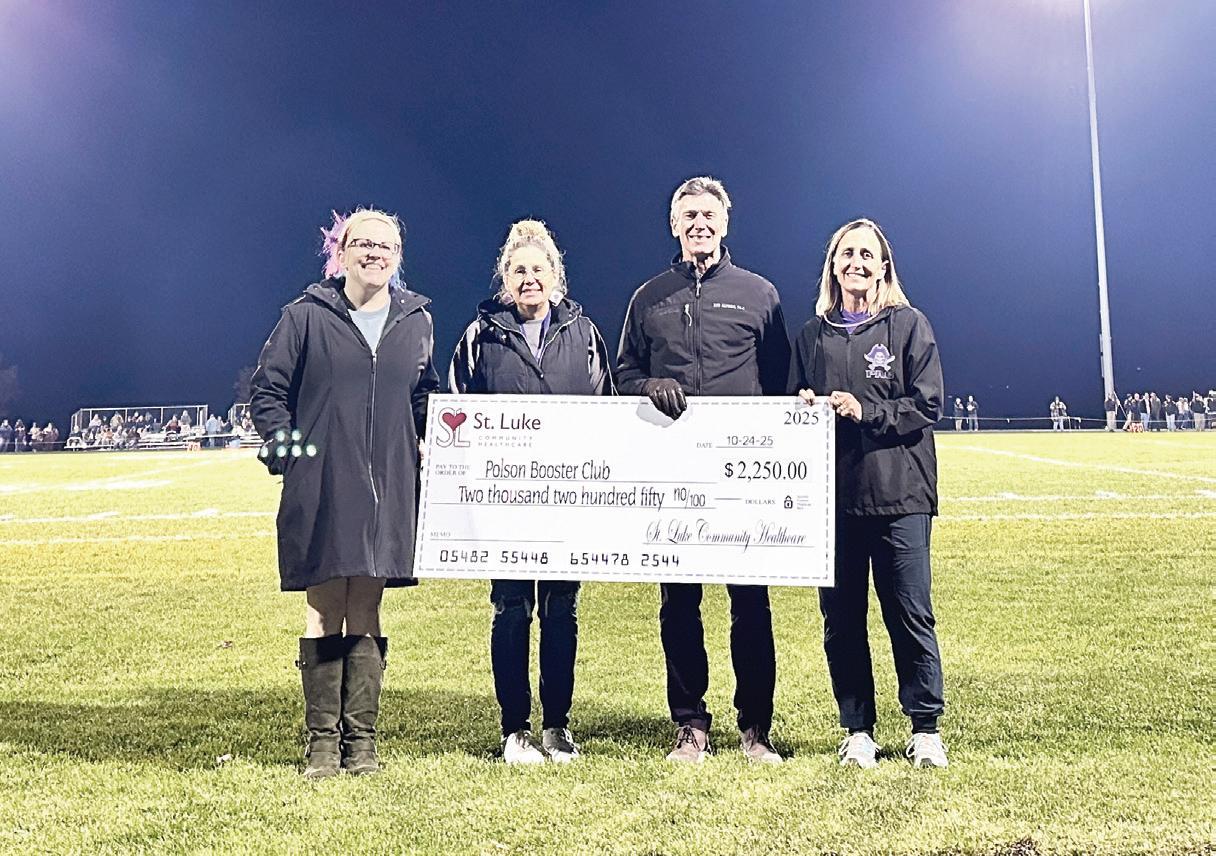
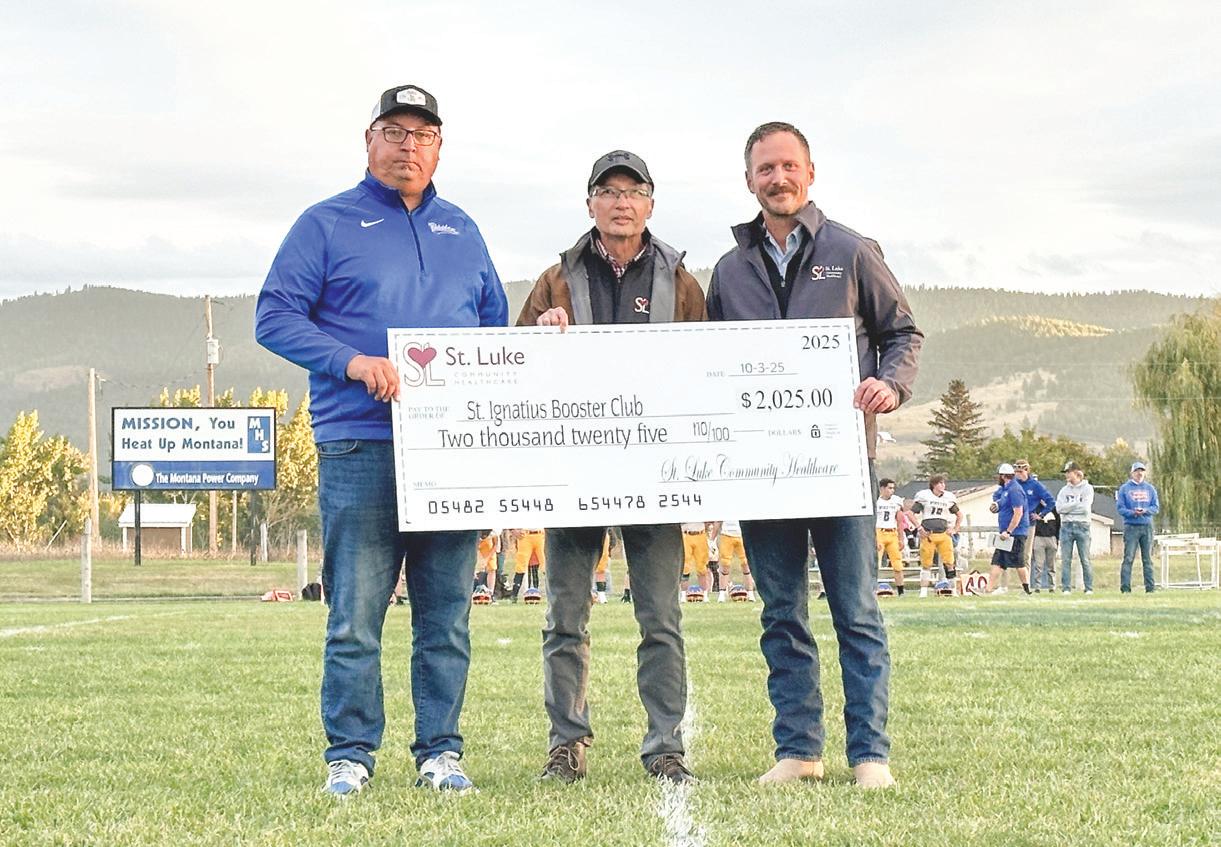
Afriend who lost her husband about a year ago recently commented that keeping busy and having lots of people around are key coping mechanisms for her in overcoming grief.
environment distracts her from grief.
Jill Pertler, Syndicated columnist
I had an immediate personal reaction: No!
I wasn’t wrong. Neither was she.
This situation made me realize - not for the first time, but for perhaps the hundredth time – that grief is such an intimate experience. We all grieve in our own way. There are no rules, standards or timelines.
That, in part, it what makes grief impossible to solve.
My friend is comforted by having others around. A busy, chaotic (and fun)
On the other hand, people, groups and keeping extra busy are often triggers for my grief. I enjoy them and can indulge in them, but then I need time alone to decompress and find my inner peace.
Grief is like that - one thing for one person and a completely different entity for another. That’s why it’s so difficult to give advice about coping or to provide insight regarding what works best.
Because what works for me, may be just the opposite of what works for you. So, while we are supportive of one another, we are also navigating alone. Even in a crowded room. Even with family and friends. Grief is always
Grateful for state-of-the-art, caring hospital
Editor,
This is a letter of praise and thank you to St. Luke’s Hospital administration and staff. When I was a boy there was no hospital in Ronan, the nearest was the Holy Sisters Hospital in St, Ignatius. There were a number of makeshift hospitals in the Ronan area through the years,
present and you are alone with it because no one else experiences the same grief that you do – even when you are both grieving the loss of the same person.
And here’s the extra, bonus aspect to grief: it is forever changing and evolving - from one day to the next, often from one moment to the next. It’s like the rules of the world - the ones you’ve lived with all your life – are no longer relevant because they no longer apply or make any sense.
Grief keeps you forever guessing. It’s like grief puts a thin veil between you and the world. You can see through it enough to know what is happening on the other side, but you are no longer a part of it. You are separated by the veil, which no one is aware of, but you.
At the same time, grief
and in 1951 St. Luke’s Hospital was started. I watched it grow into a wonderful facility that the valley can certainly be proud of. A little over two years ago, I suffered a major stroke and was taken to St. Luke’s, where I was quickly stabilized and taken by ambulance to St Pat’s Hospital in Missoula. They also took good care of me, and I harbor a little personal pride in St. Pat’s, as my ancestor, Mother Superior General Caron, who was my grand-
provides clarity and perception beyond what was normal - before. The world is crisp and clear. The grass is greener. Birdsong more melodic. The air fresher. The falling leaves more vivid and colorful. Indeed, the air is more airy. Water is more watery. The dark night skies are darker, yet the stars shine brighter than you ever could have imagined. Everything is altered, while remaining the same.
Grief is an ever-changing landscape - at times rolling hills, at others steep, rocky cliffs. It is constantly in motion, while remaining static in your life.
You might feel you are stuck in grief. You aren’t stuck. You have simply been transported to a new landscape. A completely new world.
And sadly, oh so sadly, so many cannot com-
prehend, do not want to comprehend, this world until they find themselves part of it.
Even then, when someone new enters this world of grief, you are nearly almost completely incompetent to help them because of the intimacy of grief. You can try to understand what they are going through. You can sympathize and empathize, but you can’t really know. None of us can.
Grief is so very personal. For good reason.
Here’s why: if your grief was the same as mine – if all grief was the same –that would diminish love.
Because what is grief if not love that was cut too short too soon?
All love is unique and uniquely beautiful. And in time, I believe we will come to understand the same about grief.
I hope that for me, because I do not yet know it. Yet I do.
Jill Pertler is an award-winning syndicated columnist, published playwright and author. Don’t miss a slice; follow the Slices of Life page on Facebook.
mother Marie (Caron) Cheff’s great-great aunt, founded St. Pat’s Hospital in 1873. Two doctors at St. Pat’s told me that I would not be alive if it wasn’t for my wife and son in-law getting me to St Luke’s so fast and St Luke’s doing everything just right to stabilize me and get me to St. Pat’s. I was pleased to hear this praise for St. Luke Hospital coming from St. Pat’s Hospital. My wife Laurie was recently released from St. Luke’s where she was operated on for a broken hip. During her 20-day stay there, I was so impressed with the professional, loving care St. Luke’s gave her, and the stateof-the-art equipment the hospital now has. Our community should be very proud to have such a wonderful and capable health facility with all that it offers, at our fingertips. Thank you, St. Luke’s.
Bud Cheff Jr. Charlo
Letters to the editor are welcome. The content is the opinion of the letter writer and not the newspaper. The decision to publish letters is made by the editor. Letters must be 350 words or less. A writer will only be published twice per month. Letters may be edited for content or length, or may not be published if considered libelous, in poor taste, spiteful, self-promotional or of limited interest to the general readership. Space limitations also dictate when or if letters are published. Letters must be signed by the author and name, address and phone number must be included – phone number is for verification purposes only. Letters from organizations must include the name of at least one author. Please limit “thank you” letters to four people/organizations or less. Deadline is 5 p.m. Friday to publish the following week. Opinions expressed in this section are not necessarily those of the newspaper.
Many voters in rural America cast their ballots for the Grand Old Party (GOP) in the last election because they believed their values and their communities would be defended. But the evidence is plain and certain: rural America was not protected. It was sacrificed.
From criminal investigations to economically erratic tariffs, and now the dismantling of critical healthcare infrastructure, the betrayal is not accidental. It is the inevitable result of long-held priorities—polished for voters, but designed for donors.
At the center of this betrayal is a bill wrapped in classic Orwellian doublespeak: the so-called “Big Beautiful Bill” (BBB). Behind the grandstanding lies the reality—brutal cuts to Medicaid and the Supplemental Nutrition Assistance Program (SNAP) that will devastate rural hospitals, disassemble healthcare
systems and nutrition programs serving millions of vulnerable families and veterans, substantially increase administrative costs for states and stall already precarious local economies.
Less than two weeks after the Inauguration of Donald Trump on January 20, 2025, rural Americans were promised by the President that programs like Medicaid and (SNAP) would be, in his words, “loved and cherished.”
But, in the end, it was another bait and switch. The President’s promise was quickly forgotten and the BBB was just as quickly passed, with the unanimous support and votes of Montana’s entire Congressional delegation.
To compound matters even worse, the passage of the BBB will add another $3.4 trillion to the national debt, slash an estimated $1 trillion from Medicaid and SNAP, and then redirect it to cover the cost
of more and larger tax reductions for those at the top end of the income bracket.
To sell all of this to a confused and fearful constituency, the President and party leaders dusted off the same, old, tired explanation— “waste, fraud, and abuse.” But what it really means for Montanans and other rural Americans is clinic closures, darkened emergency rooms and a 40-mile drive to deliver a baby or receive mental health care—if it’s available at all. According to the Government Accountability Office, rural patients already travel 20 to 40 miles farther for care after hospital closures across the country. That delay translates into worse outcomes and, in too many avoidable cases, preventable deaths.
This isn’t abstract. According to the U.S. Department of Health and Human Services, all 56 counties in Montana are classified as medically underserved. In addition, 25 out of 55 rural hospi-

tals, 45 percent, are facing “risk” or “immediate risk” of closing and 30 percent continue to experience losses for services rendered.
This emerging disaster is not confined to Montana. Since 2010, over 130 rural hospitals have closed across the country. Today, 300 more are at immediate risk, and as former Republican Senator and Majority Leader, Bill Frist, has warned, 600 additional hospitals across the country may not survive the blow the BBB delivers to their budgets. This isn’t just a crisis. It’s a catastrophic collapse in motion.
Rural hospitals were already strained. They serve communities that are older, poorer, and sicker, and they rely heavily on Medicaid for survival. Yet while demand grows, federal support disappears. CEOs like Steven Fontaine of Penn Highlands Healthcare have been blunt: “Without intervention, they won’t make it.”
In 2024, 69 percent of rural voters supported this version of the GOP; one that doesn’t even vaguely resemble the conservative principles it once claimed. These voters believed they were being heard. But the BBB tells a different story: it’s one of betrayal,
opacity, and harm inflicted on the very people who believed most deeply in the promises made by the President and Republicans in Congress they elected to serve them.
Let’s be clear: this wasn’t an oversight. It was a conscious and deliberate choice. A choice to prioritize more and larger tax cuts for the wealthy over healthcare and food for vulnerable Americans. And the choice was made by the same political machine, including the Congressional delegation from Montana, that pledged to fight for the forgotten heartland. So much for their hollow promises.


News from CSKT
- Only one week left in the 2025 Fall Mack Days Fishing Event, which ends on Sunday, Nov. 2. The events are sponsored by the Confederated Salish and Kootenai Tribes and sanctioned by Montana Fish, Wildlife, and Parks. The Mack Days Events began in Fall 2002 with 888 entries turned in over 15 days with 80 anglers entered in the event. The 2025 event, so far, has a total of 16,839 lake trout entries with three hundred forty anglers entered and it will end on day sixty of the ninth weekend. The Monday-Thursday fishing total was at 4,698 and Friday-Sunday total was 12,141. Friday’s total came to 753, Saturday’s was 494, and a very windy Sunday’s was 70. The 2024 Fall Event total at this time is 16,411. We would like to thank all of our anglers for continuing to make this event a success.
You still have time to enter the fishing event, catch non-native lake trout and get entered into the lottery drawings that begin at $2,000 and go down to $100. The $10,000 tagged lake trout “Double D” Downrigger Dale is still eluding anglers. There are also 3-$5,000, 5-$1,000 and over 9,000 lake trout with values from $100-$500.
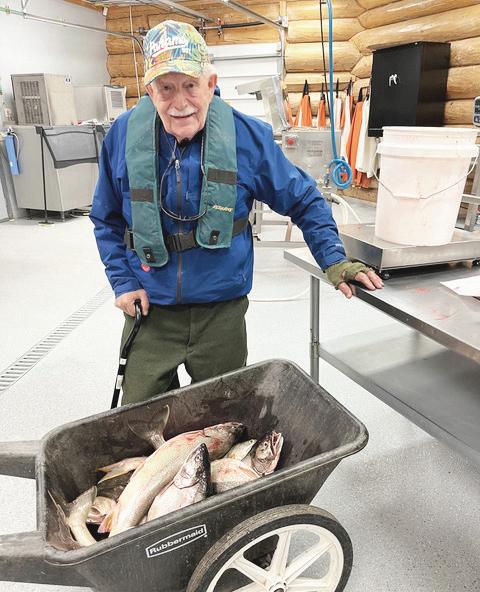
Tagged lake trout with $100 values were brought in by Mike Benson of Lonepine, Ryker Bair of Helena, and Lucas Pickens of Fort Harrison.
The native bull trout and westslope cutthroat populations in Flathead Lake have dramatically declined over the years. These Mack Days events
are used as a management tool to reduce the non-native lake trout in the lake. Native trout in Flathead Lake are among the most widely endangered fish species in the Flathead Basin. Native trout and are highly valued as symbols of environmental quality and natural integrity in areas
system. Working hard to increase their numbers will ensure these fish are here in the future. Mack Days anglers are a big part of making a difference in the Flathead system.
Dan Deutschman of Fergus Falls, Minnesota with 200; 18th is Ryker Bair of Helena with 166; 19th is Steve Mack of Helena with 163; and 20th is Felix Gauci of Stevensville with 152.
all over the region. Their declining populations gave us warning that something was not working in the system. We needed to respond before we lost all the native fish species, their genetics and natural instincts that they have developed over the thousands of years that they have lived in this
Expert angler Terry Krogstad of Kalispell has moved into the first place in the Top Twenty Category with 1,062 entries and has an 18-day average of 53.61. Top Twenty are placed by their 18-day average at the end of the event. David Myers of Riverton, Wyoming, is in second place with 986 and an 51.56 avg; 3rd is Larry Ashwell of Missoula with 894 - 46.78 avg.; 4th is Julie Perkins of Kalispell with 89645.39 avg.; 5th is Jack Kirkland of Lolo with 696 - 38.06 avg.; 6th is Devon Bukowski of Kalispell with 696 - 36.22 avg.; 7th is Patrick Casey of Townsend with 64435.11 avg.; 8th is Richard Kreis of Huson with 562 – with 29.17 avg.; 9th is Mike Benson of Lonepine with 464 - 25.78 avg.; 10th is Lyndon Lee of Canada with 45724.44 avg.
Bob Stewart of Kalispell is 11th with 421; Janey Myers of Riverton is 12th with 346; 13th is Laurie Kreis of Huson with 357; 14th is Larry Karper of Florence with 298; 15th is Jerry Benson of Plains with 295; 16th is Angie Morrow of Kalispell with 228; 17th is
If an angler is in the Top Twenty and is a leader in another category such as the Ladies, 70 & Over, etc. they have to choose which category they want to win in.
Julie Perkins of Kalispell, one of the veteran lady anglers is leading the Ladies with 896; second is Laurie Kreis of Huson with 357; 3rd is Janet Myers of Riverton with 346; 4th is Angie Morrow of Kalispell with 228; and 5th is Shaunda Albert of Ronan with 66.
Olivia Cottet of Polson is the leader in the 13-17 Category with 12 and Carter Lindsay of Pablo is leading in the 12 & Under with 9. Terry Krogstad is 1st in the 70 & Over (Golden Oldies) with 1,062; Larry Ashwell is 2nd with 894; 3rd is Jack Kirkland with 696; 4th is Mike Benson with 464; and 5th is Larry Karper with 298.
The third and last day of the Buckets Event ended with 85-year old Jens Gran of Polson becoming a three-time winner with a bucket of 4 lake trout that weighed in at 31.8 lbs., 2nd was Justin Bair with 22 lbs.
see page 14
MSU will celebrate a beloved rivalry with several events.
BOZEMAN — Montana State University will celebrate its longstanding and beloved Cat-Griz football rivalry with events throughout the week of Nov. 17.
The annual football game between MSU and the University of Montana – popularly known as the “Brawl of the Wild” – will be played at Washington-Grizzly Stadium in Missoula this year. Kickoff is at noon Saturday, Nov. 22. The game can also be viewed on Scripps Networks, ESPN+ or at a local watch party.
Additional events open to all Bobcat fans are listed below:
- Can the Griz, Nov. 8-22
The annual Can the Griz food drive, an off-field competition between MSU and UM to see which school can collect the most donations for its local food bank, is being held Nov. 8-22. Non-perishable items can be donated at one of these drop-off locations, or monetary contributions can be made to support those in need. The friendly battle is now in its 26th year and is hosted by the Office of Student Engagement. For more information, visit canthegriz.org.
- MSURA, OLLI and MOLLI
Annual Brawl of the Wild Lecture, Nov. 20
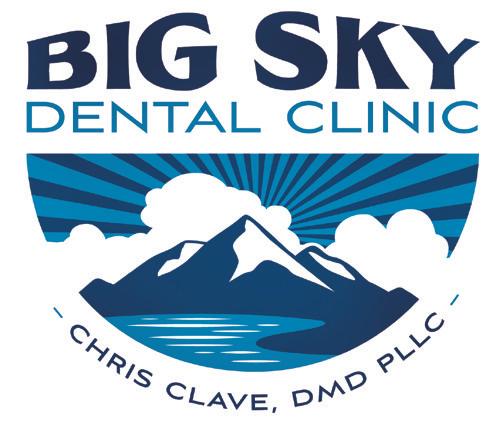

Registration for in-person attendance is $15 and covers light appetizers and beverages. Online registration is free. Registration is required by Thursday, Nov. 13.
- Bobcat Brawl Bingo, Nov. 22 Bobcat fans are invited to play Bobcat Brawl Bingo on Saturday, Nov. 22, wherever they’re watching the game.
The MSU Retirees & Associates, the Osher Lifelong Learning Institute of MSU and the Osher Lifelong Learning Institute of Montana will host their annual Cat-Griz partnership event during the week of the game. The virtual presentation given by James Koch, former UM president, will examine the financial and competitive development of intercollegiate athletics and the governance of these programs at the national level, within athletic conferences, by governing boards and on campuses. The event will be held from 4 to 5:30 p.m. Thursday, Nov. 20, in the MSU Alumni Foundation Great Room, 1501 S. 11th Ave. in Bozeman, and online. The event is open to Montana OLLI and MSU Retiree & Associates members and friends of MSU.
Participants who get a bingo, snap a photo and share it on social media using #BobcatBrawlBingo25 will be entered for a prize. Winners will be picked at random, and two individuals will receive Bobcat Bookstore makeovers valued at $100 each. The giveaways and event are hosted by the MSU Alumni Foundation. Rules may be found online. Registration is required by Wednesday, Nov. 19.
- Cat-Griz watch parties, Nov. 22 Across the nation, more than 10,000 MSU and UM alumni, friends and fans are expected to gather at more than 90 locations to watch the Brawl of the Wild together. A complete list of watch parties hosted by the MSU Alumni Foundation can be found at: msuaf.org/catgrizwatchparty. Online registration is preferred by Thursday, Nov. 20; walk-ins are also welcome.

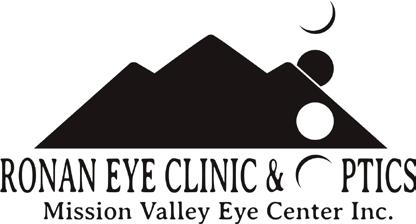
from page 12
and 3rd were Richard and Laurie Kreis with 14.65 lbs. Jens won the 1st Bucket Day with a weight of 32.8 over Rick Skates’ weight of 32 lbs. and his second bucket weight of 29.05 beat Mike Benson’s weight of 28.75. The three buckets Jens entered totaled 93.65 lbs. Weekend winners were: $200-Richard Kreis and $100 winners were-Laurie Kreis, Alison Putzler of Bozeman, Julie Perkins, and Lyndon Lee.
The last day of the event is Sunday, Nov. 2nd. All lake trout are to be turned in by 3 p.m. at Blue Bay with an awards ceremony at that time. Lottery prize drawings will be posted. There will be light snacks served but no fish fry.
Thank you everyone for making this event a success. Come out and enjoy weekend of Mack Days fall fishing. The last day is a separate day with its own prizes. Totals do count for the bonus awards totaled at the end of the event.
Tight lines everyone!
vj
State President, State Superintendent investigating professional development providers for compliance with existing laws
News from the Senate Republicans Montana Legislature
HELENA — Senate
President Matt Regier, R-Kalispell, and State Superintendent of Public Instruction Susie Hedalen today announced legislation to end the practice of Montana teachers receiving educational credit for their participation in conferences promoting extreme leftist ideology and classroom indoctrination.
Their legislative push follows reporting that exposed seminars promoting radical gender ideology, DEI, nude child photography, and sexually explicit books at the Montana Federation of Public Employees’ 2025 Educator Conference that took place Oct. 16-17 at Big Sky High School in Missoula.
“I want to thank President Regier for his leadership in introducing the bill to end state-mandated PIR days for union meetings,” Hedalen said. “Montana parents have made it clear they want classrooms that teach, not indoctrinate. Our schools exist to educate children, not to serve as platforms for political activism or social experimentation. When
taxpayer dollars fund ‘professional development’ that celebrates sexually explicit books, defends nude images of minors as ‘art,’ and promotes gender ideology to young children, something has gone deeply wrong. The days of hiding ideology behind professional development are over. Randi Weingarten and her cronies are not welcome in Montana.”
“Holdover” state senators not up for reelection before the next legislative session can request legislation at any time. Regier formally reserved a bill title late last week to “revise education laws related to teacher training and education and meetings of teacher organizations” during the Legislature’s next session in 2027 (see screenshot attached). Regier’s bill title is the very first to be reserved for the 2027 legislative session.
Regier and Hedalen plan to model the legislation after House Bill 557 from the 2025 legislative session. That bill, which was sponsored by Rep. Jodee Etchart, R-Billings, and narrowly failed, was brought in response to MFPE’s 2024 teacher conference that similarly featured troubling programming on progressive activism, LGBTQ+ issues, DEI training, and electoral politics, all funded by Montana taxpayers. Each of those sessions was given by political activists with a progressive or left-leaning orientation.
“Montana has been closing schools and paying teachers for two days every year to attend this confer -
ence in order to develop professionally and better serve their students. But instead of learning how to instruct students on core skills and prepare them for life, these conferences have been indoctrinating teachers with leftist political extremism,” Regier said.
“We’re done seeing Montanans’ property taxes, which pay for teachers to attend this conference, go towards the promotion of ‘gender unicorns’ and sneaking sexually explicit books into school libraries,” Regier continued. “In the next legislative session, we’re going to pass a law that tax dollars and educational credits can only go to conferences that instruct teachers on things like core curriculum classroom education.”
According to recorded audio and testimony of people who attended MFPE’s 2025 conference, Montana teachers were subjected to presentations that included:
An NEA employee promoting their six LGBTQ modules and “gender unicorn” (which includes discussion of physical sexual attraction) to educators who teach grades as young as kindergarten.
A “DEI in Art” panel decrying the removal of a photography display of nude children, describing that censorship as a “dangerous place” that the presenter would teach in the context of the censorship employed by Adolf Hitler’s Nazi regime.
(The Modern Art Museum of Fort Worth describes
that art display: “In showing her children naked, moody, and in suggestive situations, Mann evokes an edgy, dark side of childhood that can be raw and unsettling.” Emphasis added).
A librarian telling her “victory story” of bringing a sexually explicit book back to her library to provide to middle school students. The illustrated book about a fictional gay male high school couple includes multiple passages of explicit softcore pornography.
Unlike previous years, MFPE failed to publicly put their conference agenda and sessions online. Hedalen is currently investigating MFPE and other professional development providers to ensure they are following existing state and federal laws ahead of the next Legislature acting on her and Regier’s proposed legislation.
Speaker of the House Brandon Ler, R-Savage, and Representative Jodee Etchart, R-Billings, threw their support behind the proposed bill.
“Courses that teach our teachers must further our public education system’s obligation to provide students with a quality education and prepare the next generation for the workforce and real life. Montana students and their parents deserve no less. House Republicans are eager to work with the Senate and Superintendent Hedalen to get this across the finish line next session,” Ler and Etchart said.
The delivery was made possible by Producer Partnership, the country’s only USDA-inspected, nonprofit livestock processing facility.
by Amanda Eggert, MT Free Press
After the state intervened to trap about 100 swine demonstrating feral behaviors, Montana food banks are slated to receive an influx of pork this week.
Late last month, Wildlife Services, a federal agency under the U.S. Department of Agriculture’s umbrella, tipped off the Montana Department of Livestock that it might have a feral swine population on its hands.
Wildlife Services, which intervenes when landowners report conflicts with wildlife, had been called to Phillips County in north-central Montana to investigate a potential bear conflict. The agency didn’t find evidence of bear activity, but it did find hoof prints, pig scat and other signs consistent with swine presence. The day after Wildlife Services visited the site near Malta along the Hi-Line, the state started looking into the matter and learned that approximately 100 pigs were running uncontained and “beginning to demonstrate behaviors and characteristics
“ Domestsic swine, left to their own devices for a couple of generations, actually revert back to feral behavior very quickly.”
- Tahnee Szymanski, Montana State Veterinarian
consistent with feral swine populations,” according to a press release.
The Montana Legislature passed a law in 2015 prohibiting the importation, transportation or possession of feral swine. Intentionally, knowingly or negligently allowing swine to live in a “feral state” is also illegal. By passing the law, policymakers sought to ward off issues states and provinces have reported with feral swine, which can damage crops and wetlands, prey on wildlife and spread a form of brucellosis that can be transmitted to humans.
Neighboring areas, most notably Alberta and Saskatchewan in Canada, have grappled with feral swine populations for years, and wildlife managers there and in the U.S. consider them to be an invasive species.
Montana State Veterinarian Tahnee Szymanski told Montana Free Press that feral swine can become established in three ways: they can migrate into Montana from an area with an established population, they can be introduced — il-
legally — by hunters eager to pursue them for sport, or they can develop when domestic animals are freed from the “normal checks and balances” associated with livestock production.
“Domestic swine, left to their own devices for a couple of generations, actually revert back to feral behavior very quickly,” Szymanski said. “This is a really good reminder that a potential feral swine population could crop up anywhere in the state.”
The state livestock department receives about six reports per year of potential feral swine sightings. All of them have turned out to be “owned domestic swine running at large,” according to an agency press release.
In this particular case, there were some unique circumstances related to a death in the family that owned the swine, Szymanski said.
“This situation just kind of got out of control,” she said. “It has been allowed to maybe fester a little bit longer than a traditional circumstance we would encounter.”
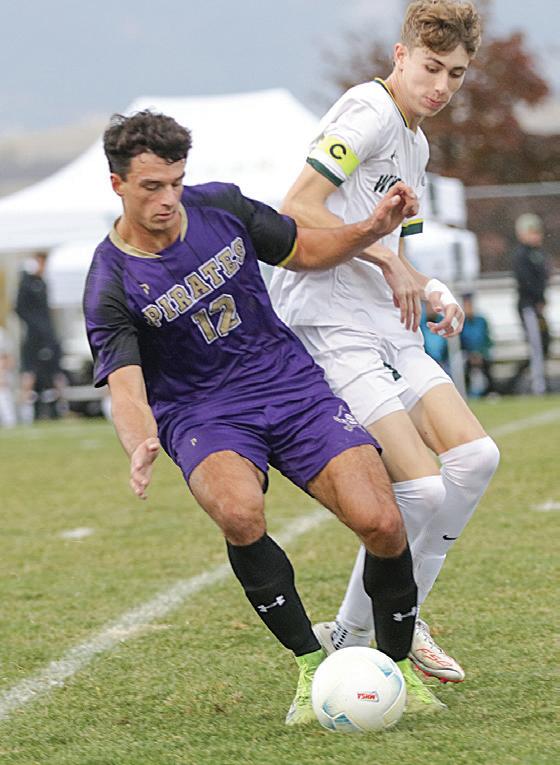

Sponsored by your Lake County Boosters: Polson Lube Center 883-0055 ExpressService













News from Pete Mangels for the Valley Journal
POLSON - Hunting season is here, as well as raking season, and hooded jacket season. I try to remember why fall is my favorite season, then I remember that football is the reason!
See’s Candy is due at the center this week. Pre-ordering begins now. Cost TBD.
On Sunday, Nov. 9, , our Polson Community Center has been rented by a group for a “town hall” presentation from 2–4 p.m. The public is welcome to attend.
Veterans Day is Nov. 11. If you love your freedom, thank a vet. They have been fighting against tyrants for over 250 years.
The 21st is our “Birthday for Lunch” meal with turkey and all the trimmings. We will be closed on Thanksgiving, Thursday, Nov. 27 and Friday, Nov. 28.
Activities:
- Bingo: Fridays in November at 6 p.m. - except for Nov. 28 - first Wednesday of each month only is “playing card” elimination style bingo at 6 p.m.
- Pinochle: Thursdays (standard) and Mondays (no pass) noon-3 p.m.
- Pool: Open table from 8 a.m.-3 p.m.
- Spinning Wheelers: second and fourth Tuesdays of each month – 11 a.m.-1 p.m.208-520-1013
- VSO (Veterans Service Officer:) first Friday and third Tuesday of each month
– 10 a.m.-noon - Walk-ins OK.
- Bridge and Mahjong groups meet regularly at the center.
- Bowling fun-league is on Tuesdays at 1 p.m. at the Sportspage Bowl.
- Exercise class: (sitting, standing and low impactvideo assisted) - M-W-F 10:30 a.m.-12:30 p.m.
Menu (subject to substitutions):
lunch $5 donation served 11:45 a.m.-12:30 p.m. Monday- Friday - Individuals who are under 65 years old or do not have a mast form on file are charged $10 per meal.
- Wednesday, Nov. 5: baked chicken mashed spuds, gravy, green beans, fruit medley Jell-O, poke cake
- Thursday, Nov. 6: barbecue ribs, baked potato, beans, coleslaw, lemon apricot pudding
- Friday, Nov. 7: ham and cheese submarines, copper penny salad, mandarin oranges, apple cake
- Monday, Nov. 10: broccoli soup, muffin, Watergate salad, peanut butter bar
- Tuesday, Nov. 11: Veterans Day - chicken Alfredo, mixed veggies, stewed tomatoes, mixed fruit, cherry cheesecake
- Wednesday, Nov. 12: meatloaf with mashed potatoes and gravy, peas, green salad, apple sauce, orange cake
- Thursday, Nov. 13: beef enchiladas, spicy beans, corn-tomato salad, key lime bars
- Friday, Nov. 14: blueberry strata, link sausage, peas, baked apple, coffee cake
Our Polson Senior Citizens Community Center provides space for groups to meet for physical and mental health, social and educational purposes. Our center is available for reserved special events on weekends and evenings. Call us.
We are open 8 a.m.–3 p.m. on weekdays, or later by appointment. Contact us at 406883-4735; 504 Third Ave. E; email: polsonseniorcenter@ gmail.com; visit us on Facebook!
By Theresa Yares for the Valley Journal
ST. IGNATIUS - With cold/flu season here, the best and most effective way to prevent getting and spreading germs is to wash your hands, wash your hands, wash your hands. My daughter, Becky, when she was about 11 years old, complained one day about all the colds she was getting, and asked why I didn’t get sick. “I wash my hands,” I said. I encouraged her to wash her hands after using the toilet, before eating, blowing her nose, coughing/sneezing. She took my advice and noticed a decrease in getting sick. I encourage everyone to wash your hands, wash your hands, wash your hands. Hand sanitizer also works if you don’t have soap and water close at hand. Dixie will be here from Area VI Agency on Aging on Friday, Nov. 14, from 9 a.m.-5 p.m. to help with Medicare Open Enrollment. There are still appointments available.
Bring a current medication list, email address, Medicare red/white/blue card, and cell phone. Call the St. Ignatius Senior Center at 406-7454462 to sign up. Questions? Call Dixie at 406-872-2282. The AARP Classroom Driving Course is scheduled for Nov. 6 from 10 a.m.-2 p.m. here at the St. Ignatius Senior Center. Call the Center at 406-745-4462 to sign up.
Menu:
- Friday, Nov. 7: Fish, wheat bread, coleslaw, French fries, apple slices, brownies - Tuesday, Nov. 11: stew, fry-bread, mixed fruit, chocolate chip cookie
- Friday, Nov. 14: chicken enchiladas, carrots, cherries, dessert
Everyone is welcome at our meals (young and old). Come enjoy a delicious meal and good conversation. If you would like a takeout meal, call 406-745-4462 by 10 a.m. on Tuesdays and Fridays and by 2 p.m. on first and third Wednesdays. Mealtimes are; noon on Tuesdays and Fridays and 5:30 p.m. on the first and third Wednesdays of each month. Menus for the month are available in the entryway of the center.
Our senior center is available for rent. If interested, call 406-745-4462 or stop by. If you have questions about obtaining Elder Commodities, call or stop by for information and an application.
Gentle Yoga is held on Wednesdays from 1 to 2:15 p.m. If you are interested, call Bonnie Kiser at 406-2530177. Her rate is five sessions for $65.
Month, new data shows 23.82% of adults in MT provide care, spotlighting urgent need for action to support family caregivers.
News from AARP
HELENA — New AARP caregiving data released recently, Caregiving in the U.S. 2025: Caring Across States, finds that 23.82% of adults in Montana — approximately 214,000 people— are family caregivers, providing largely unpaid and unsupported care to older parents, spouses, and other loved ones. The data can be found here: states.aarp. org/montana/caregiving.
“When a loved one needs help, family members, friends, and neighbors step up, that’s what we do,” said Tim Summers, AARP Montana State Director.
see page 17
from page 16
“But too often, caregivers carry this responsibility alone, often putting their finances, health and jobs at risk. As our state population ages, the demand for care will only grow. With the release of this new data and ahead of the 2027 legislative session, AARP Montana is urging policymakers at every level to act now to help family caregivers save money, time and get the support they need.”
Family caregivers provide $1.76 billion in unpaid care each year in Montana, helping family members live independently at home and in their communities—where they want to be. Their caregiving responsibilities range from bathing and meal prep to managing medications, arranging transportation and handling complex medical tasks, with little or no training. But the toll on our
family caregivers is great— financially, physically, and emotionally.
80% of caregivers pay out of their own pockets to help meet their loved ones’ needs, averaging $7,200 each year, or 25% of their income.
In Montana, 47% of family caregivers report financial setbacks— taking on debt, draining savings, or struggling to afford basics like food and medicine.
54% of our state’s caregivers are also juggling full- or part-time jobs. Many must reduce work hours or leave the workforce entirely due to caregiving responsibilities, jeopardizing their own long-term financial security.
During the interim AARP Montana is fighting for commonsense solutions to save caregivers money and time and provide greater support:
Updating Montana’s long-term care system policies and funding structures to better re-

flect the realities and needs of a rapidly aging state.
Helping family caregivers to manage their loved one’s personal or financial decisions by improving Montana’s adult guardianship and conservatorship laws.
The interim period before the 2027 session of the Montana Legislature includes various committees that meet to discuss and prepare legislative matters. These interim committees play a crucial role in shaping policies and addressing issues before the next regular session begins.
And at the federal level, AARP is working to save caregivers money through the Credit for Caring Act, a proposed federal tax credit of up to $5,000 for working caregivers, and the Lowering Costs for Care-
givers Act, which would expand flexible spending and health savings account uses.
This National Family Caregivers Month, AARP Montana encourages everyone to show support for caregivers and to join the growing movement of Americans raising their voices for change. Join
AARP’s “I Am A Caregiver” movement and tell lawmakers it’s time to support those who care. Visit:aarp.org/IAmACaregiver.
To access free caregiver tools and local resource guides, visit:
AARP Montana Family Caregiver Resource Guides to help family caregivers access key programs, services, and agencies right in their community: aarp.org/ MTCaregiving Montana resources for
veterans and their caregivers: aarp.org/MTVets
AARP’s online Caregiving Hub with tools and information available in English and Spanish:aarp.org/Caregiving
AARP and United Way Worldwide’ s 211 program connects family caregivers to essential local services for themselves and their loved ones via the 211 helpline: www.Montana211. org
AARP’s official caregiving Facebook group serves as a place for family caregivers nationwide to connect, share practical tips, offer support, and discuss their shared experiences.
Keyword search: AARP Family Caregivers Discussion Group.


DPHHS encourages Montanans to prepare for respiratory illness this fall, winter
News from DPHHS
MONTANA - As Montana approaches the colder months and the start of another respiratory illness season, the Department of Public Health and Human Services (DPHHS) urges all Montanans to take preventative measures to defend against COVID-19, influenza (flu), pneusee page 18




from page 17
mococcal pneumonia, and respiratory syncytial virus (RSV).
State health officials advise all Montanans to protect themselves and their families by prioritizing immunizations, practicing strong hygiene, staying home when sick, and seeking prompt testing and treatment.
Laboratory-confirmed cases of influenza have already been reported in Montana for the 2025-2026 respiratory illness season, which runs from October through May.
More than 15,600 people infected with influenza, including over 1,000 hospitalizations and 65 deaths, were reported to DPHHS during the 2024-2025 respiratory illness season.
Additionally, over 7,500 people infected with COVID-19 were reported in Montana, resulting in more than 600 hospitalizations and 51 deaths during this same period. This does not include data for individuals who did not receive testing by a provider or in a health care setting (e.g., individuals who tested positive using an at-home or over-the-counter COVID-19 or flu test kit).
The high number of respiratory illnesses highlights the importance of taking preventive measures to reduce the burden of illness in Montana.
DPHHS will maintain a Respiratory Virus Illness Dashboard to provide weekly data updates on the activity of COVID-19, influenza, and RSV across the state.
Vaccination is the most effective defense against the serious outcomes of respiratory diseases, including hospitalization or death from infections such as COVID-19, influenza, pneumococcal pneumonia, and RSV. While anyone can suffer a severe outcome, those at highest risk include older adults, infants, pregnant women, and individuals with weakened immune
systems or chronic conditions (such as diabetes, cancer, or heart disease).
Fortunately, effective vaccines are widely available. Montanans should consult with a health care provider to determine their recommended vaccine options for the season. To find a vaccine nearby, contact your local health department, pharmacy, or other trusted health care provider. Updated COVID-19 vaccines are recommended based on individual-based decision-making for those six months and older.
Influenza vaccines are recommended for everyone six months and older every season. Several influenza vaccines are approved for use. One dose provides protection for the entire season (October to May).
Pneumococcal vaccines help protect against a deadly form of bacterial pneumonia, which is the most serious form of pneumococcal disease.
Adults 50 years and older are eligible to receive RSV vaccines after discussion with their health care provider. Pregnant women between 32 and 36 weeks of pregnancy entering the RSV season may receive the RSV vaccine, which will also protect their infant.
Infants under eight months old or who are between eight and 19 months with certain health conditions may receive an RSV antibody product.
Symptoms of COVID-19, flu, RSV, and other respiratory illnesses often share commonalities, including signs such as fever, cough, sore throat, headache, body aches, and fatigue. If an individual is experiencing symptoms or has tested positive, they should stay home and limit contact with others while sick.
Individuals at risk of severe illness should seek health care right away for testing and evaluation. This is critical because prompt treatment options are available that can help reduce the length and severity of the illness.
It is generally safe to return to daily activities only after the individual has been fever-free for a full 24 hours without the use of fever-reducing medication and has experienced an overall improvement in their symptoms.
Individuals may still be able to spread the virus that made them sick even if they are feeling better. Some people, such as those with immunocompromising conditions, may be able to spread the virus for an extended period of time. Montanans should take additional measures to prevent the spread of illness for five days after returning to normal daily activities, including: Wash your hands often with soap and water. If soap and water are unavailable, use an alcohol-based hand sanitizer containing at least 60% alcohol.
Cover your mouth and nose with disposable tissue or your inner elbow whenever you cough or sneeze. Testing before you plan to be around others, especially those who are at risk of severe illness (e.g., pregnant women, older adults, infants, immunocompromised people). If you test positive, consider remaining home and away from others.
If you cannot remain home and away from others, use a face mask if you will be around people in a close setting, especially those who are at risk of severe illness (e.g., pregnant women, older adults, infants, immunocompromised people).
Take steps to improve air quality, including moving group activities outside when weather permits, opening windows and doors for fresh air, and using a high-efficiency particulate air (HEPA) filter. Anyone experiencing severe or concerning symptoms—including trouble breathing, persistent chest pain or pressure, new confusion, or inability to stay awake—should immediately seek medical evaluation
News from MT Fish, Wildlife and Parks
KALISPELL — Montana’s general deer and elk hunting season opened last weekend with nearly 2,000 hunters stopping at Montana Fish, Wildlife & Parks Region 1 check stations, reporting a slightly higher percentage of success compared to last year.
The check station results from the opening weekend show increased overall harvests of white-tailed deer and elk across the region over last year, while mule deer numbers were down.
The 2025 general season runs through Nov. 30.
Check stations are open on weekends during general season from 10 a.m. to approximately 1.5 hours past sunset. The northwest Montana stations are located at U.S. Highway 2 West of Kalispell, Montana, Highway 83 north of Swan Lake, Highway 200 west of Thompson Falls, and Highway 93 near Olney.
Hunters must stop at any check station they encounter whether they harvested an animal or not. The counts at the stations represent a sampling of the harvest and do not represent the complete number of animals taken.
A table summarizing the opening weekend results at northwest Montana check stations is available on the FWP website.
Hunters play an important part in helping FWP learn where chronic wasting disease (CWD) is and how it spreads.
When hunters have their harvested deer, elk and moose tested for CWD, they provide key insights into the effectiveness of CWD management, the disease’s prevalence and its presence.
Hunters can have their animals sampled at CWD sampling stations or most FWP offices. Hunters can also collect the samples themselves, fill out the online hunter submission form and mail the samples to the Wildlife Health Lab in Bozeman.
For information on how to self-submit samples and a list of CWD sampling station locations, visit: https:// fwp.mt.gov/conservation/chronic-wasting-disease/ FWP hosting CWD sampling clinic in Kalispell on Oct. 30
FWP is hosting a sampling clinic at its Kalispell office on Thursday, Oct. 30 to help hunters learn how to collect lymph nodes for testing. The clinic will be from 5-6 p.m. with staff available to help teach hunters how to self-submit samples. Hunters can bring a recently harvested deer or elk head or FWP will have some heads available.
-CWD testing is voluntary in most places in Montana.
-All hunters in Hunting District 170 are encouraged to get their harvested deer and elk tested for CWD.
-There are mandatory testing requirements for tags see page 22
Free developmental screening offered
ARLEE - A free Developmental and Preschool Screening Clinic for children ages 0 to 5 for Arlee School District will be held on Wednesday, Nov. 5, from 12:30–3 p.m. at Arlee Elementary School. This free screening will include gross motor, fine motor, language concepts, communication concepts, communication skills, hearing and vision screening. Please call to schedule an appointment for your child’s screening or to receive more information at 406-726-3216
Free meditation class offered
POLSON - Join the Mission Mountain Zen Center on Wednesdays for online instruction, practice and discussion via Zoom and in-person. The classes will be rom 6 to 7:30 p.m. We will cultivate and deepen our centering skills and meditation practice during the class. For more information and a Zoom link to the class call Zenku at 847-721-0665 or email at: Jerry.Smyers@ gmail.com. Go to: www. missionmountainzen. org for more information.
Arlee Food Pantry to remain open
ARLEE - The food pantry at the Arlee Community Development Corporation is usually closed the first week of

The Mission Range’s freshly powdered peaks provide a harbinger of things to come.
each month. To meet the increased need due to the loss of SNAP benefits, the Arlee CDC pantry will be open the first week of November on Thursday, Nov. 6, from 5 to 7 p.m. and Friday, Nov. 7, from 1 to 3 p.m.
‘Adapting Collaboration to a Changing Federal Landscape’ hosted by MFCN in Missoula
MISSOULA - Montana Forest Collaboration Network (MFCN) will host the 10th annual workshop, Nov. 6-7, at Missoula Hilton Garden Inn. The Montana Forest Collaboration Network (MFCN) is convening its 10th annual workshop titled, “Adapting Collab-
oration To A Changing Federal Landscape” in Missoula, Nov. 6 – 7, at the Hilton Garden Inn, Missoula. MFCN is again bringing together Montana collaborative and interest groups focused on natural resource management and engaging with state and federal agencies.
‘Lifestyle Medicine’ held Thursdays
ELMO/ST. IGNATIUS - Tribal Health holds “Lifestyle Medicine” on Thursdays in Elmo from 9-11 a.m. and in St. Ignatius from 1-3 p.m. every Thursday. Focus areas include, nutrition, movement, sleep, being present, and staying calm. Benefits may include a decrease in
blood pressure, decrease medication dosage, weight loss, increased energy, improved well-being, and new friendships. For more information call LouettaConko-Camel at 745-3525 X 1448.
Friday, Nov. 7
‘Food for Life’ held every Friday in November
ST. IGNATIUSEvery Friday in November, beginning Nov. 7, at the St. Ignatius Tribal Heal Community Fitness Center, “Food for Life Diabetes Initiative” will be held between 11 a.m. and 1 p.m. Learn about nutrition, cook healthy meals
talks about the pros and cons to online shopping sites and best practices when shopping in a digital world. Bring your own device please.
Saturday Story Time held
POLSON - This program is held at 10 a.m. and is a repeat of the Thursday theme and is focused on 3-5 year olds. We read stories and have activities for kindergarten readiness.
Tuesday, Nov. 11 Veterans Day
Library closes for holiday
POLSON – Polson Library and the Joyful Cup will be closed for the Veterans’ Day holiday.
and eat some delicious food with others. Call 406-745-3525, for more information.
Little ones love Mother Goose
POLSON - The Polson Library’s Mother Goose Program is held on Fridays at 10 a.m. for 0-24 month olds.
Saturday, Nov. 8
Learn to shop smart online
POLSON - On Saturday, Nov. 8, at 2 p.m. Polson Library will host a Technology Class: “Smart Shopping in a Digital World”. Join Mark as he
Wednesday, Nov. 12
Young Child Wellness Council to meet
PABLO - On Wednesday, Nov. 12, at noon, in the Depoe Building on the SKC campus the next Young Child Wellness Council will meet. Lunch will be served. All are welcome to this group of representatives from across Flathead Reservation and Lake County. The Nov. 12 meeting will feature Callie Parr, an Early Childhood Tribal Coordinator from Zero to Five who will present “Braiding Culture and Advocacy: Exploring how culture, connection and advocacy come to-
from page 19
gether to nurture belonging for Native children and families. Tom Camel will present, “Honoring our Veterans’ Story.” All meetings are on the second Wednesday of each month.
David Sedaris performs at Wachholz College Center
KALISPELL - The Wachholz College Center is proud to welcome renowned author and humorist David Sedaris for an evening of unforgettable storytelling on Nov. 12. Sedaris brings his signature blend of humor, keen observation, and deeply personal insight to the stage in a live event that promises to entertain and inspire. For more information and ticket details, visit: wccmt.org or contact the ticket office at 406-756-1400.
Free meditation class offered
POLSON - Join the Mission Mountain Zen Center on Wednesdays for online instruction, practice and discussion via Zoom and in-person. The classes will be rom 6 to 7:30 p.m. We will cultivate and deepen our centering skills and meditation practice during the class. For more information and a Zoom link to the class call Zenku at 847-721-0665 or email at: Jerry.Smyers@ gmail.com. Go to: www. missionmountainzen. org for more information.
RONAN – On Thursday, Nov. 13, at 6:30 p.m. (every second Thursday of the month) the Lake County Conservation District holds their regular board meeting at 64352 US Hwy. 93. Meetings are open to the public and agendas are at: LakeCountyConservationDistrict.org
‘Lifestyle Medicine’ held Thursdays
ELMO/ST. IGNATIUS - Tribal Health holds “Lifestyle Medicine” on Thursdays in Elmo from 9-11 a.m. and in St. Ignatius from 1-3 p.m. every Thursday. Focus areas include, nutrition, movement, sleep, being present, and staying calm. Benefits may include a decrease in blood pressure, decrease medication dosage, weight loss, increased energy, improved well-being, and new friendships. For more information call 745-3525 X 1448.
Toddler Time held at library
POLSON - The Polson Library holds Toddler Time at 10 a.m. on Thursdays. This program is for 2-3 year olds and is all about movement.
Story Time begins at library
POLSON - The Polson Library holds Story Time at 2 p.m. This program focuses on 3-5 year olds and includes stories and activities for kindergarten readiness. Watch the library website for weekly theme updates.
POLSON – On Friday, Nov. 14, at 4 p.m. at the Polson Library a Board Game Day for ALL ages will take place. We will be playing in the Teen Area due to the Book Sale.
Mission Valley Live presents ‘Broadway in Love’
POLSON - The music of Broadway in Love provides Broadway’s greatest songs as shared with real-life Broadway married couple, Libby Servais and Stephan Stubbins. Enjoy songs from “Wicked,” “Beautiful,” “The Sound of Music,” “Jersey Boys,” “9 to 5,” “My Fair Lady,” “Frozen,” and “The Phantom of the Opera,” on Friday, Nov. 14, at 7 p.m. at the Ronan Performing Arts Center. Single tickets are $13 in advance and $15
at the door. Youth 18 and under are free. Go to First Interstate Bank in Polson, Ronan True Value in Ronan, missionvalleylive. com or call 406-471-5849 for tickets or information.
‘Food for Life’ held every Friday in November
ST. IGNATIUSEvery Friday in November, at the St. Ignatius Tribal Heal Community Fitness Center, “Food for Life Diabetes Initiative” will be held between 11 a.m. and 1 p.m. Learn about nutrition, cook healthy meals and eat some delicious food with others. Call 406-745-3525, for more information.
The Polson City Commission meets every first and third Monday of the month (Wednesday, if the Monday falls on a holiday) at 7 p.m. at City Hall, 106 1st Street East. Meetings are open to the public.
St. Ignatius City Council meets the second Tuesday of the month at 6 p.m. at City Hall, 12 First Ave. 406- 745-3791
Ronan City Council meetings are held on the second and fourth Wednesday of each month at 6 p.m., 207 Main Street SW, Ste A. 406-676-4231
Lake County Commissioners , 106 Fourth Ave. E, room 211, (Lake County Courthouse) 406-883-7278, Monday-Thursday 10 a.m.-12 p.m. & 1:30 p.m.-4:30 p.m.
The Lake County Conservation District , 64352 US HWY 93, Ronan, meets monthly on the second Thursday of the month at 6:30 p.m. Meetings are open to the public and agendas may be found at LakeCountyConservationDistrict.org.
Thursday, Nov. 13
Conservation Board to meet
Friday, Nov. 14
Board Game Day for all held at library
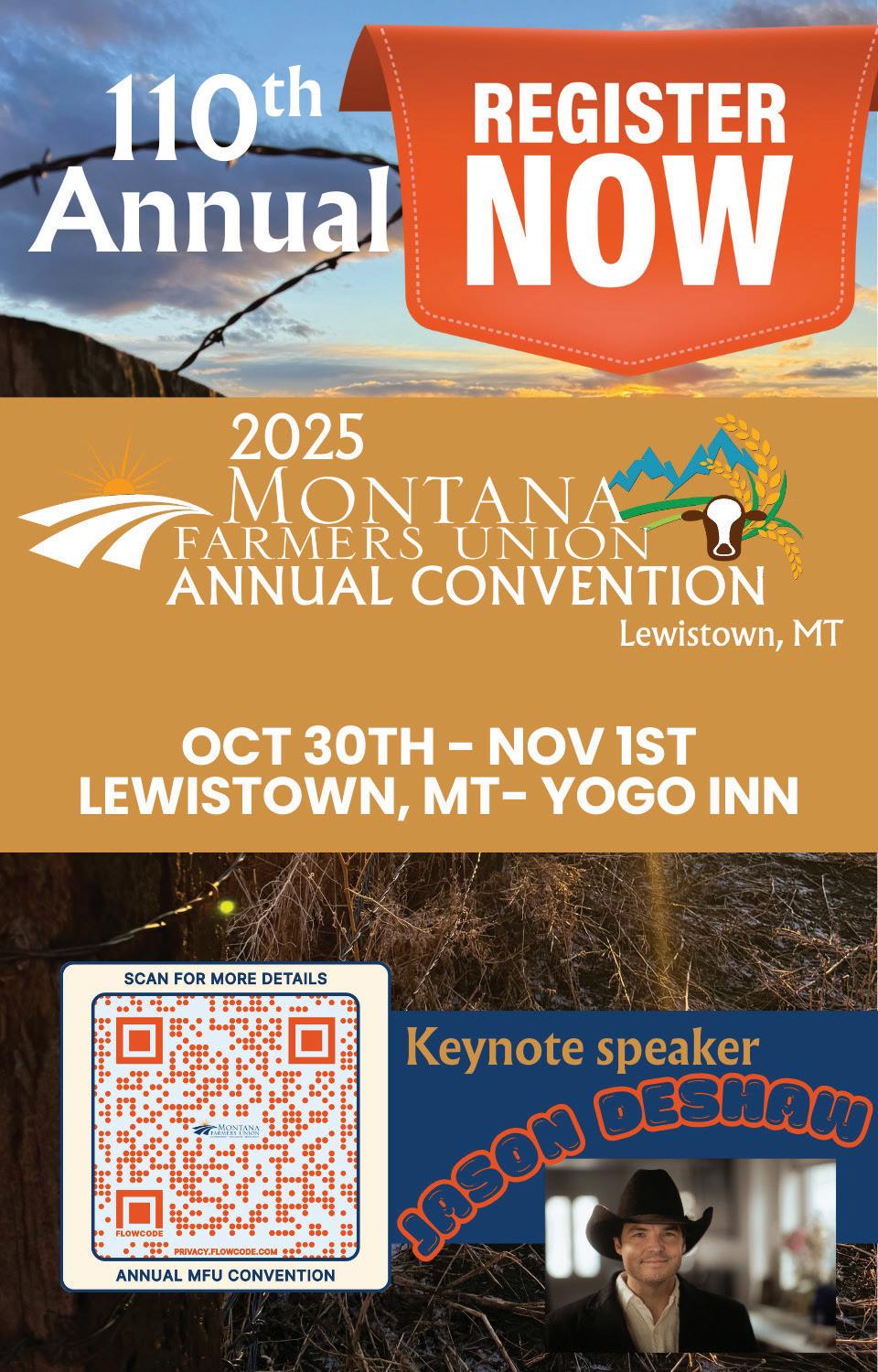
The Ronan School District No. 30 Board of Trustees have regularly scheduled board meetings once a month. They meet the second Monday of every month in the K. William Harvey Elementary Multi-Purpose Room. Regular meetings begin at 7 p.m.
The Polson School District No. 23 Board of Trustees have regularly scheduled board meetings once a month. Meetings are held the second Monday of each month from 5:30-7:30 p.m. at the District Office, 111 4th Ave. E, 406-883-6345.
The Charlo School District 7J B Board of Trustees have regularly scheduled meetings on the third Thursday of every month. Meetings are held in the school library, 404 1st Ave. W, and begin at 7 p.m. The phone number is 406-6442206.
The Arlee School District No. 8 Board of Trustees hold regularly scheduled meetings on the second Tuesday of each month. Meetings are held in the Arlee High School Library, 72220 Fyant Street, and begin at 6:30 p.m. The phone number is 406-726-3216.
Valley View Elementary is located at 42448 Valley View Road. The phone number is 406-8832208.
St. Ignatius School District No. 28 Board of Trustees meetings are held the third Tuesday of each month at 7 p.m. in the library, 76 Third Avenue. The phone number is 406-745-3811.

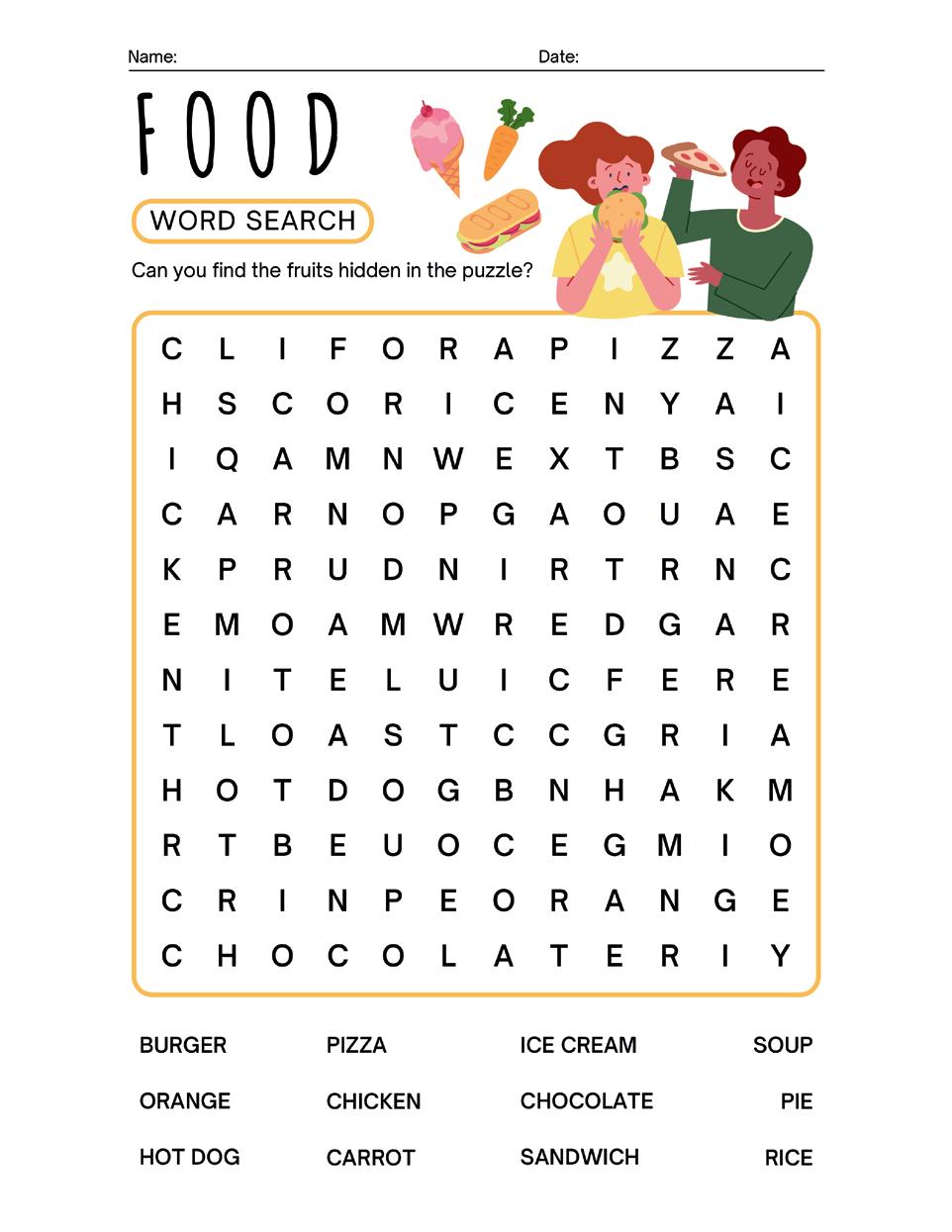
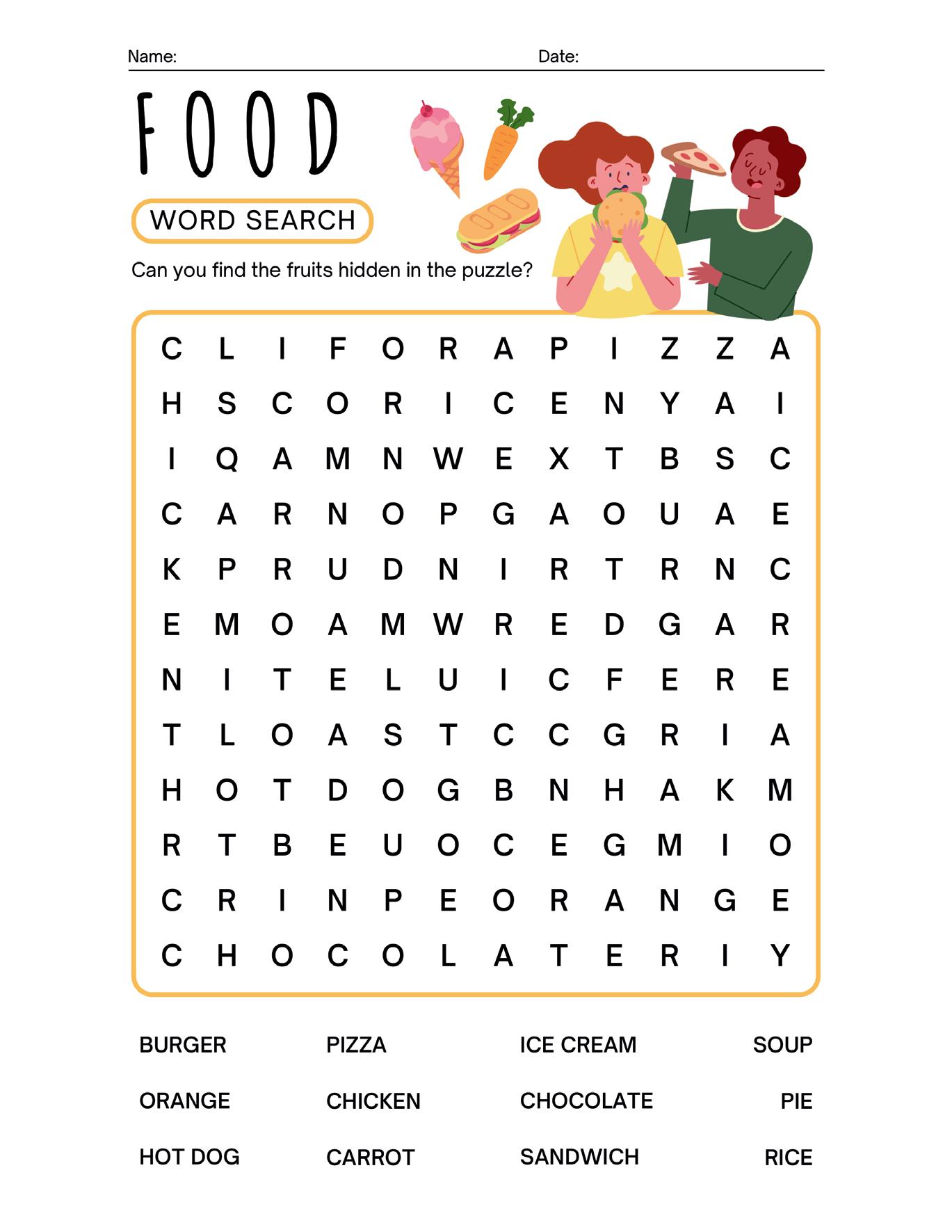


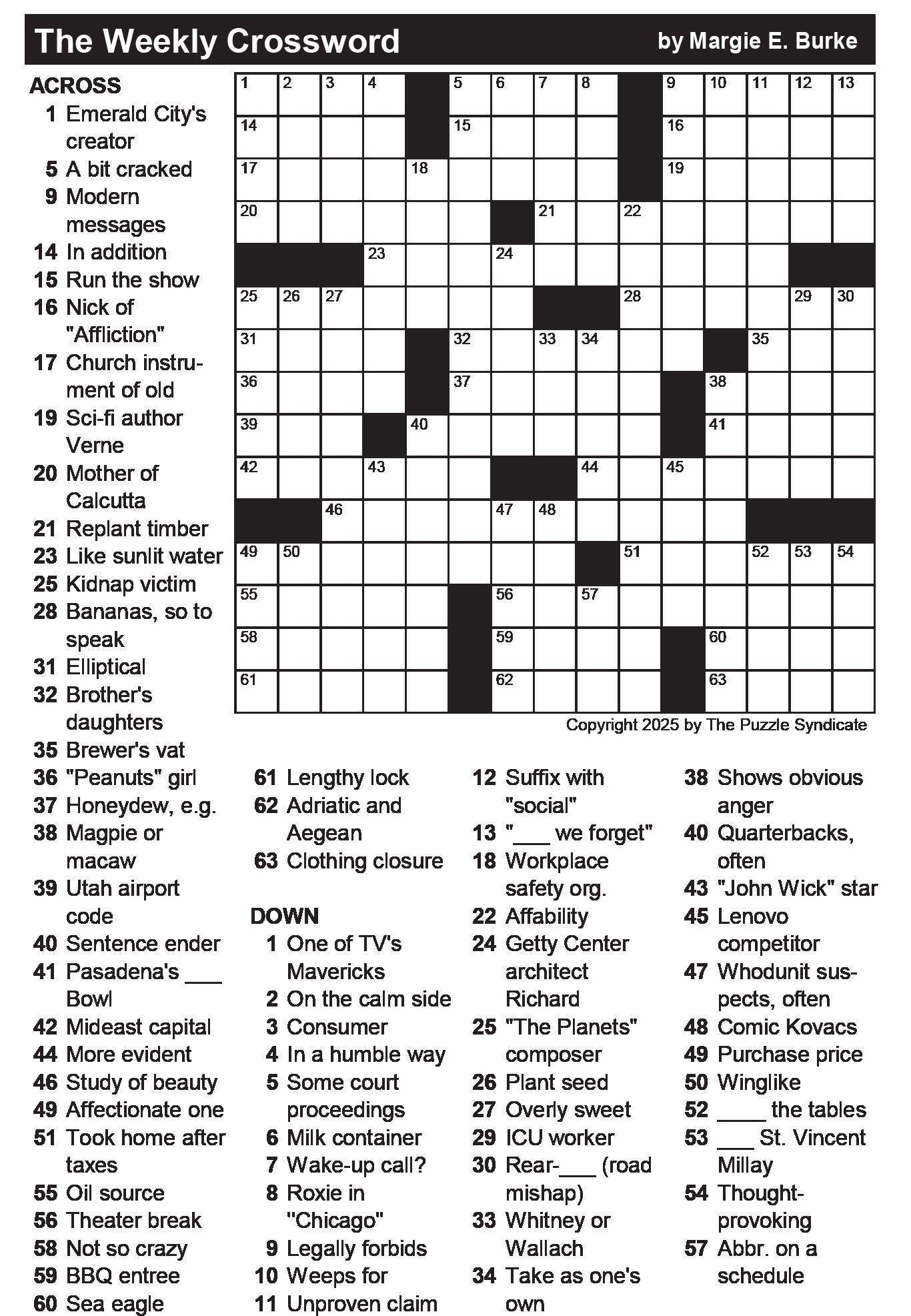

associated with CWD management near Libby. Testing is required for all animals harvested using the Deer B License 199-20 in HDs 100, 103 and 104, or Deer Permit 103-50 in HD 103.
-FWP strongly recommends that hunters receive a negative CWD test result before bringing their deer, elk or moose to a meat processor or donating it to a foodbank.
-If the animal tests positive for CWD, FWP will advise the hunter on proper carcass and meat disposal and give instructions on how to request a replacement license.
In northwest Montana, here’s how you can get your animal sampled this fall:
General Deer & Elk Season
-Hunters may self-submit samples
-Visit the Libby CWD Sampling Station, located at the Montana Department of Transportation shop on US Hwy 2. It will be open Saturdays, Sundays & Mondays, 10 a.m. – dusk.
-Visit a game check station open on weekends
-Visit the Region 1 office in Kalispell (490 N. Meridian) during business hours, Monday–Friday.
Heritage Muzzleloader
-Hunters may self-submit samples
-Schedule an appointment with the Libby office at 406293-4161 (ext. 209)
-Visit the Region 1 office in Kalispell (490 N. Meridian) during business hours, Mon-
day–Friday
Learn more about CWD at https://fwp.mt.gov/conservation/chronic-wasting-disease/ Carcass Disposal
Carcass parts, such as brain, eyes, spleen, lymph glands, and spinal cord material, should be left at the kill site when possible. If the animal is transported for taxidermy or meat processing, the brain and spinal tissue must be bagged and disposed of in a Class II landfill.
A carcass may be transported within the state regardless of where it was harvested if the carcass parts are disposed of in a landfill after butchering and processing.
Dumping carcasses is illegal, unethical, and can spread diseases, including chronic wasting disease. This requirement applies to all deer, elk, and moose carcasses wherever in the state they are harvested by hunters or as vehicle-killed salvage. For a map of carcass disposal sites, go to the FWP website.
Northwest Montana (Region 1) Hunting Season Reminders
Hunters should plan ahead and review the regulations for each hunting district they plan to hunt. When reading the regulation booklet, make sure to review the far right column titled, “Opportunity Specific Details and/or Restrictions.”
All hunters planning to access the Flathead Ridge Ranch Block Management Area off U.S. Highway 2 West
between Kalispell and Libby must obtain a free permission card for the season. The permission card must be displayed from the rearview mirror of every hunter’s vehicle while on the property. Only one card per vehicle is required but each hunter’s name within the vehicle must be on the slip. Many private lands that were historically owned by corporate timber companies have changed ownership, and hunters should review the Block Management Program to view available public access opportunities and restrictions on private lands. Visit: https:// fwp.mt.gov/hunt/landownerprograms/block-management Hunters should “Be Bear Aware” and properly store food and carcasses. Hunters are encouraged to carry bear spray and know how to use it. More food storage and safety information are available on the FWP website.
A recent outbreak of epizootic hemorrhagic disease (EHD) is causing numerous mortalities in white-tailed deer across western Montana. Carcasses tend to be concentrated around water sources, in particular, and can be creating an attractant for bear. Both grizzly and black bears are currently eating excessively to prepare for hibernation. Deer can be a nice boost for their hungry appetite, but also a potential place for a negative interaction between recreation and wildlife. Hunters should be aware of potential carcasses attracting bears.
Ruth Wilkinson
ST. IGNATIUS — Ruth Wilkinson, 90, passed away peacefully on Oct. 25, 2025 at her daughters’home in St. Ignatius.
grandchildren and great-grandchildren. She enjoyed making life memories together and valued those teaching moments she was able to share with her kids and grandkids alike.
Whether you’ve
or $500,000,
help you build a strategy to make the most of it.


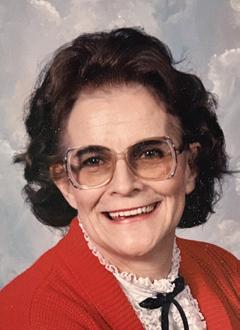
Ruth was born the second of seven kids to Carl and Arbutus Hulquist of Sagle, Idaho. Ruth got married at a young age to Edward Wilkinson and they had 12 children together - seven boys and five girls. Ruth was a selfless woman who always gave of her love and her time to help those who needed her. She spent her life doing a varied number of jobs besides being a full-time mother and housewife she worked as a grocery clerk and also as florist - a job which she loved, she also worked as a seamstress sewing cushions for wheelchairs for Easter Seal and also for developmentally disabled individuals at M.D.C. in Boulder, Montana. Ruth was a born again Christian and dedicated daily prayer time to the Lord and enhancing her spiritual faith. She loved doing crafts and making decorative photo albums and putting together floral arrangements.
Ruth loved being a mother and caring for her children and later in life being able to spend quality time with those now adult children, with
Ruth was predeceased by her father and mother, Carl and Arbutus Hulquist; her husband, Lee Edward Wilkinson; daughter, Susie Wilkinson and son, James Wilkinson; brother, Carl Dean Hulquist; and sisters, Lou Eveland and Elaine Obenaur.
She is survived by her six sons, Arthur (Connie) Wilkinson (Pasco, Washington), Joseph Wilkinson and Thomas Wilkinson (Missoula), Christopher (Ronnie) Wilkinson (Boulder, Montana), Edward (Christine) Wilkinson (Cheyenne, Wyoming), Frank Wilkinson (Boulder, Montana) and four daughters, Colleen (Coco) Blood (St. Ignatius), Ruthie (Andy) Kulawinski (Alberton), Cindy (Gerry) Neville (Cheyenne, Wyoming) Michelle (Jon) Dachel (Cheyenne, Wyoming), and 23 grandchildren, 53 great grand Children, eight great great-grandchildren.
A viewing will be held at Foster Funeral Home on the morning of Nov. 8 from 9 a.m.-12 p.m. in St. Ignatius. Funeral services will be held at the Catholic Church on Saturday, Nov. 8, at 2 p.m. in St. Ignatius. Reception to follow at Catholic Church after burial at Pleasant View Cemetery.


































































































Connect to the best wireless home internet with EarthLink. Enjoy speeds from 5G and 4G LTE networks, no contracts, easy installation, and data plans up to 300 GB. Call 855-419-7978
Get a break on your taxes! Donate your car, truck, or SUV to assist the blind and visually impaired. Arrange a swift, no-cost vehicle pickup and secure a generous tax credit for 2025. Call Heritage for the Blind Today at 1-855-901-2620 today!
Portable Oxygen Concentrator May Be Covered by Medicare! Reclaim independence and mobility with the compact design and long-lasting battery of Inogen One. Free information kit! Call 855-762-1508
Safe Step. North America’s #1 Walk-In Tub. Comprehensive lifetime warranty. Top-of-the-line installation and service. Now featuring our FREE shower package and $1600 Off for a limited time! Call today! Financing available. Call Safe Step 1-855-601-2865

All real estate advertising in this newspaper is subject to the Fair Housing Act and the Montana Human Rights Act which makes it illegal to advertise any preference, limitation or discrimination based on race, color, religion, creed, sex, marital status, age, familial status, physical or mental disability, or national origin, or an intention to make any such preference, limitation or discrimination. Familial status includes children under the age of 18 living with parents or legal custodians, pregnant women and people securing custody of children under 18. This newspaper will not knowingly accept any advertising for real estate which is in violation of the law. Our readers are hereby informed that all dwellings advertised in this newspaper are available on an equal opportunity basis. To complain of discrimination call HUD Toll-free at 1-800669-9777. The toll-free telephone number for the hearing impaired is 1-800-927-9275.
William P. Williams, IV FRENCH, GRAINEY & WILLIAMS, PLLC
Attorneys at Law 324 Main SW
Employment: Full-time newsroom position with the Choteau Acantha weekly newspaper. Duties: writing/ reporting, editing, page layout/design, photography, video production, social media/website management. Must be familiar with Microsoft Word, Photoshop, InDesign. Preferred bachelor’s degree in journalism or experience as reporter/photographer or copy editor. Wages DOE, starting at $18/ hour. Two weeks paid time off. Position available Jan. 1, 2026. Send cover letter, resume, writing/photography portfolio, with three references to: Choteau Acantha Publishing Inc., P.O. Box 320, Choteau, MT 59422, or email to: acantha@3rivers. net. Call Choteau Acantha Editor Melody Martinsen at 406-466-2403. Position open until filled.
Ronan, MT 59864
Telephone: (406) 676-4470
Attorney for Personal Representative bill@fgwilliamslaw.com
MONTANA TWENTIETH JUDICIAL DISTRICT COURT, LAKE COUNTY
IN THE MATTER OF THE ESTATE OF RICHARD A. MENKE, Deceased.
CAUSE NO. DP-25-67 NOTICE TO CREDITORS
NOTICE IS HEREBY GIVEN that the undersigned has been appointed Personal Representative of the above-entitled Estate. All creditors of the decedent having claims against the decedent’s estate are required to present their claims within four (4) months after the date of the first publication of this Notice or said claims will be forever barred as creditors of the decedent.
A written statement of the claim indicating its basis, the name and address of the claimant, and the amount claimed, must either be mailed to DICK BRATTON, the Personal Representative, return receipt requested, c/o FRENCH, GRAINEY & WILLIAMS, PLLC, 324 Main SW, Ronan, MT 59864, or filed with the Clerk of the above-entitled Court.
DATED this 16th day of October, 2025.
/s/ Dick Bratton
DICK BRATTON,
Personal Representative
Oct. 22. 29 and Nov. 5, 2025 MNAXLP
Daniel Rasmussen 11693 Dixie Rd. Central Point, OR 97502 541-621-1269
Danielrasmussen36@gmail.com
IN THE TRIBAL COURT OF THE CONFEDERATED SALISH AND KOOTENAI TRIBES OF THE FLATHEAD RESERVATION, PABLO, MONTANA
IN THE MATTER OF THE ESTATE OF: Tracy Tevis, Deceased.
Cause No. 25-0127P
NOTICE TO CREDITORS BY PUBLICATION
NOTICE TO CREDITORS Estate of Tracy Tevis, Deceased Cause No. 25-0127P
Notice is hereby given that the undersigned, Daniel Rasmussen, has been appointed Personal Representative of the above-named estate.
All persons having claims against the above-named estate are require to present their claims to the Personal Representative within 4 months after the date of the first publication or said

claims will be forever barred.
Climas must either be mailed toe the Personal Representative, return receipt requested, and/or mailed to the Clerk of Court of the Confederated Salish and Kootenai Tribal Court, P.O. Box 278, Pablo, Montana 59855.
DATED this 22nd day of September, 2025.
Daniel Rasmussen 11693 Dixie Rd. Central Point, OR 97502
Oct. 22, 29 and Nov. 5, 2025 MNAXLP

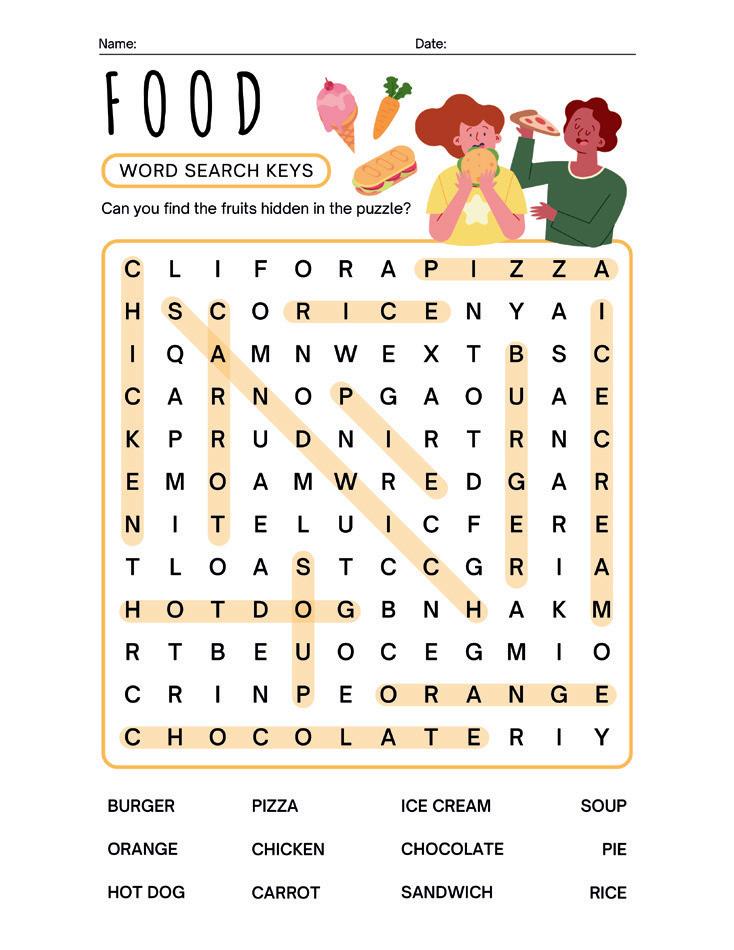

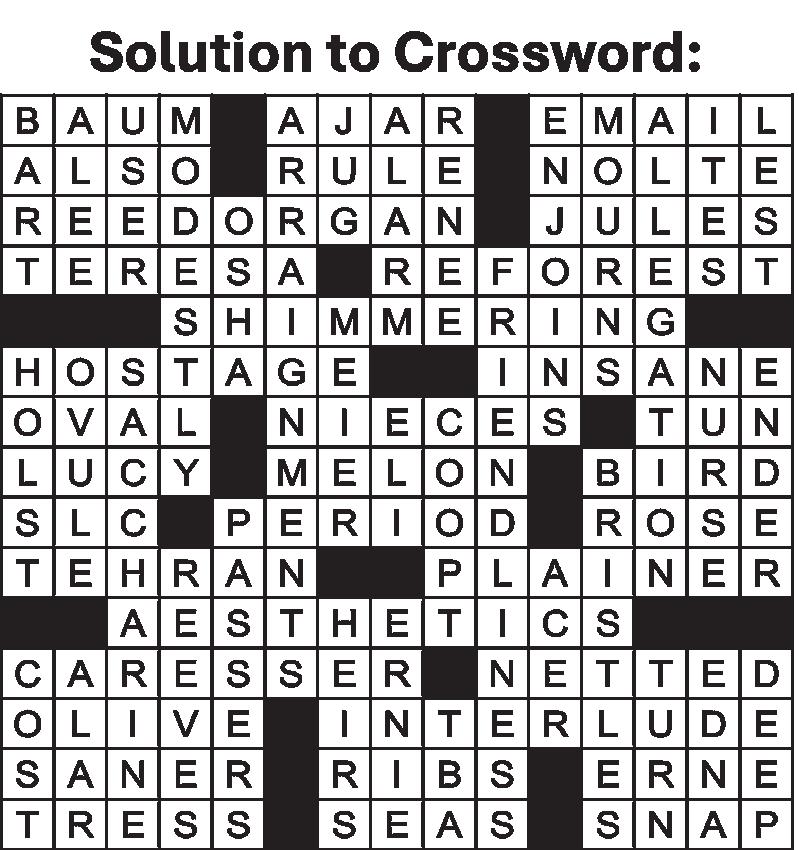



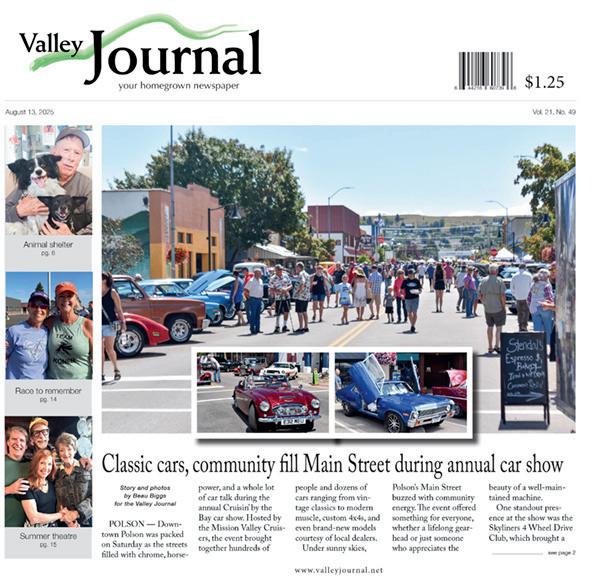
Love local? Love to write? Love to shoot photos? How about meeting new people and learning new things? This is the business opportunity you’ve been waiting for!
This newspaper has over 20 years of trust, a loyal readership and advertising base. Ready for new ownership. Call Summer to learn more: 406-249-1793.
